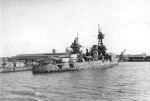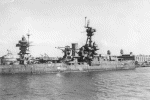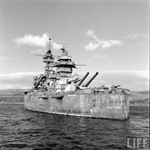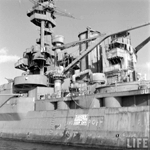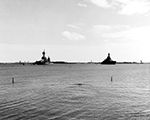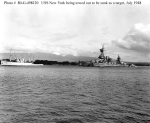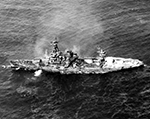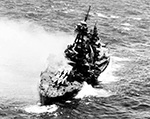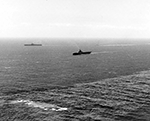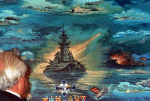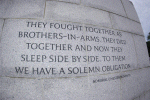Battleship Photo Index BB-34 USS NEW YORK (original) (raw)
Click On Image
For Full Size Image
Size
Image Description
Contributed
By And/Or Copyright
Keel Laying / Commissioning 1911 - 1914
1.07k
****NEW YORK AND TEXAS NAMES**
OF TWO NEW BATTLESHIPS
Washington, December 16. New York and Texas are the names of the two new battleships authorized at the last session of congress. Texas will be the name of the vessel which, as provided by the last naval bill, will be constructed by a private contractor while the New York dreadnought will be built by the government at the New York navy yard. This selection of names for the two most powerful vessels in the United States navy, which was made by Secretary of the Navy Meyer, will necessitate the changing of the designations of two warships already in commission, for at present there is the Texas, a second class battleship, which will be renamed San Marcos in honor of a city of Texas. Her displacement is only 6,315 tons, while the new Texas will be of 27,000 tons displacement. The present cruiser New York will be rechristened the Manhattan. The New Hampshire (BB-25), (pictured) one of the crack ships of Uncle Sam's navy, will be a dwarf beside the New York and the Texas. The two new battleships will be nearly 10,000 tons heavier.
Image and text provided by University of Florida.
Photo from the The Pensacola Journal. (Pensacola, Fla.) 1898-1985, 17 December 1910, Image 6, courtesy of chroniclingamerica.loc.gov.
460k
Launching Ways of the New York (BB-34), Monthly Progress Photo, Looking North, Yard Labor, 1 June 1911.
What looks to be the Ohio (BB-12) is in the left distance.
National Archives Identifier: 6038403
Photo courtesy of catalog.archives.gov
730k
World's Greatest Guns On New U.S. battleships Will Make Naval Warfare Inconceivably Dreadful
Image and text provided by University of Utah, Marriott Library.
Photo from the The Salt Lake Tribune. (Salt Lake City, Utah) 1890-current, 17 September 1911, MAGAZINE SECTION, Image 51, courtesy of chroniclingamerica.loc.gov.
NR
The beginning of a dreadnought.
W. P. Cluverius, Jr., son of Lt. Commander W, P. Cluverius, U. S. N. and grandson of Admiral Sampson, fastening the first bolt in the keel plate of the battleship New York (BB-34).
Image and text provided by Library of Congress, Washington, DC.
Photo by The New-York Tribune. (New York [N.Y.]) 1866-1924, 12 September 1911, Image 4, courtesy of chroniclingamerica.loc.gov.
NR
New United States Battleship Utah (BB-31), The Navy's Greatest Sea Fighter, Now Receiving Finishing Touches, and Her Immense Twelve-Inch Guns.
LAYING KEEL OF THE NEW YORK (BB-34) & SAMPSON'S GRANDSON.
Image and text provided by University of Illinois at Urbana-Champaign Library, Urbana, IL.
Photo by _The Cairo Bulletin._The Cairo Bulletin. (Cairo, Ill.) 1???-1928, 18 September 1911, Image 1, courtesy of chroniclingamerica.loc.gov.
NR
CHILDREN LAY KEEL PLATE OF BIG BATTLESHIP
RIVETING ON THE HORSESHOE.
AT the Brooklyn navy yard recently there took place a ceremony unique in the annals of naval construction. This was the riveting of a horseshoe onto the first keel plate of the New York (BB-34), that is to be the latest, largest and most powerful of the ships of the Dreadnought class in the navy of this country. After the emblem of good luck was thus fastened in place, the keel plate, nominally with the assistance of the children was lowered to its assigned position on the frame of the ship and riveted there. The sturdy little chaps who participated in the ceremony were all the children of naval officers or attaches of the yard. The picture shows one of them taking his turn with the hammer and driving a rivet through its appointed hole in the horseshoe and the white keel plate beneath.
Image and text provided by University of Illinois at Urbana-Champaign Library, Urbana, IL.
Photo by Rock Island Argus. (Rock Island, Ill.) 1893-1920, 16 September 1911, Image 9, courtesy of chroniclingamerica.loc.gov.
182k
Keel of the New York (BB-34).
Digital ID:# ggbain 09583, LC-B2-2267-13. Source: Library of Congress Prints and Photographs Division, from the George Grantham Bain Collection, courtesy of Tom Kermen.
1.73k
Keel of the New York (BB-34).
Digital ID:# ggbain 09517, LC-B2-2248-7. Source: Library of Congress from the George Grantham Bain Collection.
155k
The New York (BB-34) rises above her scaffolding at New York Naval Ship Yard sometime in 1912.
Digital ID: # ggbain 12234. Source: Library of Congress Prints and Photographs Division, courtesy of Bill Gonyo.
NR
How $10,000,000 Battleship New York (BB-34) Looks In the Course of Construction.
Image and text provided by Minnesota Historical Society; Saint Paul, MN.
Photo by The Bemidji Daily Pioneer.(Bemidji, Minn.) 1904-1971, 05 August 1912, Image 1, via chroniclingamerica.loc.gov.
268k
Diver going down before Battleship New York (BB-34) was launched, 25 September 1912.
Note that the battleship in the photo according to the anchor config, the bow bulwark and the half-cased funnels all point to New Hampshire (BB-25).
Photo i.d. & text courtesy of Richard M. Jensen.
Courtesy of the Boston Public Library, Leslie Jones Collection via flickr.com.
957k
Product of the New Order in Warship Building is the Mighty New York (BB-34)
The Meyer System, Favored bv Mr. Taft and Which Puts Real Naval Warriors in Charge of Battleship Construction, Has Been Applied to the Huge Craft Now Being Built at the Brooklyn Navy Yard.
Image and text provided by Library of Congress, Washington, DC.
Photo courtesy of New-York Tribune. (New York [N.Y.]) 1866-1924, 22 September 1912, Image 21, via chroniclingamerica.loc.gov.
2.32k
Brooklyn Navy Yard: 6 photo PDF of the Setting the Rudder of the New York (BB-34), 15 October 1912.
In 1st photograph the rudder, prior to be setting into position, is shown on the deck of the crane Hercules.
National Archives Identifier: 6038125
Photo courtesy of catalog.archives.gov
145k
View of the New York (BB-34) showing her propeller-less stems from her stern.
Digital ID:# ggbain 10835, LC-B2-2445-12, / 2387991140_5a3f6ff6d7_o. Source: Library of Congress Prints and Photographs Division, from the George Grantham Bain Collection, courtesy of Tom Kermen.
268k
New York (BB-34) before launch.
Note that the battleship in the background is not the New York.
Digital ID:# ggbain 10716v, LC-B2-2435-8. Source: Library of Congress Prints and Photographs Division, from the George Grantham Bain Collection, courtesy of Tom Kermen.
2.47k
New York (BB-34) christened on 30 October 1912, at the Brooklyn Navy Yard, New York City, New York.
Detroit Photographic Company. Courtesy of the Library of Congress. Photo # Lot 3000-S-7 from the National Museum of the U.S. Navy via flickr.com.
604k
GIRL IS UNABLE TO SMASH BOTTLE AT BIG LAUNCHING
Dock Worker Comes Rescue And Dreadnought Leaves The Ways.
Super-Dreadnought Launched Today, and Girls Who Took Part in Christening
Image and text provided by Library of Congress, Washington, DC. & The New York Public Library, Astor, Lenox and Tilden Foundation.
Photo by The Washington Times. (Washington [D.C.]) 1902-1939, 30 October 1912, LAST EDITION, Image 3, & The Sun. (New York [N.Y.]) 1833-1916, 04 October 1912, Image 11, via chroniclingamerica.loc.gov.
515k
Stringer Raised for Riveting, Starboard Side of the Ship, 21 October 1912.
National Archives Identifier: 6038136
Photo courtesy of catalog.archives.gov
1.01k
President William Howard Taft at the launching of the battleship the New York (BB-34) at the New York Navy Yard in Brooklyn, New York, 30 October 1912.
Photo by Bain News Service, courtesy of loc.gov..
Reproduction Number LC-DIG-ggbain-10716.
1.00k
President Taft & Sec. of Navy Henry Lewis Stimson at the Sponsor's stand during the launching of the New York (BB-34), 30 October 1912.
Photo No. f1003n2700, Brooklyn Navy Yard Archive - courtesy National Archive and Records Administration, Northeast Region - NYC, Record Group 181 via flickr.com.
1.84k
A many hatted New York crowd await New York (BB-34) going down the ways on 30 October 1912, at the Brooklyn Navy Yard, New York City, New York.
Photo by Bain News Service, courtesy of loc.gov..
Reproduction Number LC-DIG-ggbain-10718.
1.24k
New York (BB-34) on the launch, 30 October 1912, at the Brooklyn Navy Yard, New York City, New York. The ship's sponsor was Elsie Calder, the daughter of New York politician William M. Calder.
Detroit Photographic Company. Courtesy of the Library of Congress. Photo # Lot 3000-S-11 from the National Museum of the U.S. Navy via flickr.com.
1.25k
New York (BB-34) before going down the ways on 30 October 1912, at the Brooklyn Navy Yard, New York City, New York.
Photo by Bain News Service, courtesy of loc.gov..
Reproduction Number LC-DIG-ggbain-10716.
1.20k
New York (BB-34) leaving the ways on 30 October 1912.
Photo No. f1003n2704, Brooklyn Navy Yard Archive - courtesy National Archive and Records Administration, Northeast Region - NYC, Record Group 181 via flickr.com.
974k
A many hatted crowd; Naval officers with fore & aft, Bowler hatted men & plumed ladies in their finery watch as the New York (BB-34) enters the water on 30 October 1912.
Photo No. f1003n2703, Brooklyn Navy Yard Archive - courtesy National Archive and Records Administration, Northeast Region - NYC, Record Group 181 via flickr.com.
1.10k
New York (BB-34), kroY weN (43-BB).
The New York at the end of the ways; spectators reach new heights to get a reverse view of the proceedings on 30 October 1912.
Photos by Bain News Service, courtesy of loc.gov. & loc.gov.
Reproduction Numbers LC-DIG-ggbain-10717 & 10719.
1.17k
New York (BB-34) at the end of the ways.
Photo by Bain News Service, courtesy of loc.gov.
Reproduction Number LC-DIG-ggbain-10720.
1.19k
New York (BB-34) is waterborne on 30 October 1912, at the Brooklyn Navy Yard, New York City, New York
Detroit Photographic Company. Courtesy of the Library of Congress. Photo # Lot 3000-S-9 from the National Museum of the U.S. Navy via flickr.com.
1.01k
GREATEST OF WORLD'S SEA FIGHTERS LAUNCHED AT BROOKLYN NAVY YARD
Super-Dreadnought New York (BB-34) Takes to Water in Presence of Distinguished Gathering, Including President Taft and Other Officials. Description of New Vessel
Image and text provided by Library of Virginia; Richmond, VA.
Photo by The Times Dispatch. (Richmond, Va.) 1903-1914, 31 October 1912, Image 8, via chroniclingamerica.loc.gov.
710k
Railroad Track Along Water Front, West of Second Street. 30 November 1912.
Note the #3 painted on the turret.
National Archives Identifier: 6038885.
Photo courtesy of catalog.archives.gov, via Daniel Hacker.
2.92k
Monthly Progress Photo, Tracks West Side Dry Dock 4 Entrance, Looking Northwest, Yard Labor, 2 June 1913.
National Archives Identifier: 6038682.
Photo courtesy of catalog.archives.gov, via Daniel Hacker.
435k
Bow view of the new battleship New York (BB-34) and Her Sponsor, Miss Elsie F. Calder.
Image and text provided by University of Utah, Marriott Library.
Photo by The Logan Republican. (Logan, Utah) 1902-1924, 09 November 1912, Image 3 & The Washington Times. (Washington [D.C.]) 1902-1939, 11 November 1917, Image 5 via chroniclingamerica.loc.gov.
NR
Launching of the New York (BB-34).
Sponsor: Miss Elsie Calder, daughter of Representative William M. Calder, of New York, attended by Miss Kathleen Fitzgerald, daughter of Representative John J. Fitzgerald, of New York.
BRILLIANT sunshine beat upon the towering red and gray hull and upon the fifty thousand eager spectators surging in the Navy Yard and filling every roof or vessel as far as the eye could reach. Flashing effects of sky and water helped to make vivid the bunting with which vessels and buildings were dressed. At half after ten o'clock a salute of 21 guns and the dipping of flags announced the arrival of President Taft, who proceeded through cheering crowds to the stand built about the bow of the mammoth ship. Beside him stood Miss Elsie Calder, carrying an armful of flowers and holding in her hand the silver-cased beribboned bottle of champagne. Little Miss Fitzgerald stood ready with an armful of flowers to pelt the ship.
Grouped about them were Secretary of the Navy Meyer; Governor Dix and Staff; Rear-Admiral Hugo Osterhaus, Commander-in-Chief of the North Atlantic Fleet; Rear-Admiral Bradley A. Fiske, commanding the First Division; Captain Albert Gleaves, Commandant of the New York Navy Yard; Major-General Thomas H. Barry, Brigadier-General Tasker H. Bliss, and a brilliant assemblage of Army and Navy officers, and ladies. Among the ladies were Miss Helen Miller Gould and members of the Society of Sponsors of the U. S. Navy.
At eleven o'clock the great ship began her flight to the river. A mighty cheer went up from the multitude; sirens on the warships Wyoming (BB-32), Arkansas (BB-33), Florida (BB-30) Utah (BB-31), Delaware (BB-28), Connecticut (BB-18) and on countless river craft screeched, and bands played unheard in the din.
A luncheon was given in the sail loft to President Taft and a large number of invited guests immediately after the launching.
Text courtesy of Sponsors of the United States navy; Benham, Edith Wallace, comp; Hall, Anne Martin, comp 1797-1913, pg. 123, courtesy of Boston Public Library.
PDF Image and text provided by University of Oregon Libraries; Eugene, OR.
Photo by Polk County Observer. (Monmouth, Polk County, Or.) 1888-1927, 26 November 1912, Image 1, via chroniclingamerica.loc.gov.
4241k
Water Front, Looking Northwest from Search Light Tower, Building Number 22, 3 December 1912. The New York (BB-34) is in front of the building under construction.
National Archives Identifier: 6281655.
Photo courtesy of catalog.archives.gov, via Daniel Hacker.
1.47k
Turrets of the New York (BB-34) & Texas (BB-35) under construction.
Photo courtesy of the Naval General Board via Yu Chu.
521k
Ammunition on New York (BB-34), 14" shells.
Photo # LC-B2-3038-1 & text from George Grantham Bain Collection (Library of Congress) via flickr.com.
2.10k
Loading Super-Dreadnought New York (BB-34).
Taking aboard supplies at the New York Navy Yard preparatory to going into commission for sea duty.
Photo by Underwood & Underwood from "Our Navy", published by the L.H. Nelson Co., Portland, Maine in 1917, courtesy of David Johnston (USNR).
1.06k
How far can ships roll with safety.
Father Neptune Has Been Pushing Transatlantic Liners Almost to the Limit of Their Hurricane Resistance in the Last Few Weeks, but Scientific Construction Has Triumphed Over the Rage of Wind and Wave.
Image and text provided by Library of Congress, Washington, DC.
Photo by New-York Tribune. (New York [N.Y.]) 1866-1924, 26 January 1913, Image 17, courtesy of chroniclingamerica.loc.gov.
2.12k
Monthly Progress Photo, Pier F, Looking West, New York State Construction Company, Contractor, 2 April 1913.
The smokestacks & searchlights belong to another battleship in the background.
National Archives Identifier: 6281705.
Photo courtesy of catalog.archives.gov, via Daniel Hacker.
721k
New York (BB-34) Outboard Profile, 16 April 1913.
National Archives Identifier: 167817994.
Photo courtesy of catalog.archives.gov
1.01k
Three photo PDF of Crane Hercules, Lifting Turret Number 2, New York (BB-34), From Shore to Deck, Shown Swinging Clear, Weight 220,000 Pounds, 8 May 1913.
National Archives Identifier: 6038503
Photo courtesy of catalog.archives.gov
948k
Monthly Progress Photo, Tracks West Side Dry Dock 4 Entrance, Looking Northwest, Yard Labor, 2 June 1913.
National Archives Identifier: 6038682.
Agency-Assigned Identifier: F619 N46
Photo courtesy of catalog.archives.gov
538k
Placing Stack Aboard New York (BB-34), 2 July 1913.
National Archives Identifier: 6038137
Photo courtesy of catalog.archives.gov
3.87k
WHAT A DREADNOUGHT COULD DO--A BATTLE AT SEA TODAY WOULD BE MOST DREADFUL AFFAIR
...A dreadnought like the new battleship New York (BB-34) could sink a fleet of more than a hundred Oregon's before the Oregon's could get near enough to the New York to even hit her.
Image and text provided by Washington State Library; Olympia, WA.
Photo from The Tacoma Times. (Tacoma, Wash.) 1903-1949, 28 July 1913, Image 3, via chroniclingamerica.loc.gov.
2.74k
Monthly Progress Photo, Coping Cuts for Track Across Caisson of Dry Dock 4, Looking Northwest, Yard Labor, 31 July 1913.
National Archives Identifier: 6038691.
Photo courtesy of catalog.archives.gov, via Daniel Hacker.
463k
New York (BB-34) in Dry in Dock Number 4, 3 October 1913.
National Archives Identifier: 6038138
Photo courtesy of catalog.archives.gov
1.84k
Vessels Alongside Pier D Looking Southwest from Pier E, 18 December 1913.
New York (BB-34) fitting out with Arkansas (BB-33) behind. One of the Delaware's (BB-28/29) is beyond them.
Photo i.d. & text courtesy of Richard Jensen.
National Archives Identifier: 6038107
Photo courtesy of catalog.archives.gov
382k
Postcard showing ship information of the New York class battleships, which included New York (BB-34) and Texas (BB-35).
Secretary of the Navy Josephus Daniels Collection, USN photo # PR-06-CN-454-C6-F6-31, from the National Museum of the U.S. Navy, courtesy of flickr.com.
858k
HURRY WORK ON DREADNOUGHT NEW YORK (BB-34)
The Dreadnought New York, now in the Brooklyn navy yard, New York, which is being rushed to readiness for any possible trouble with Mexico.
Image and text provided by University of Nebraska-Lincoln Libraries, Lincoln, NE.
Photo by Dakota County Herald. (Dakota City, Neb.) 1891-1965, 08 January 1914, Image 1, via chroniclingamerica.loc.gov.
1.15k
U.S. Atlantic Fleet battleships steaming toward Mexican waters in 1914. Photograph copyrighted in 1914 by E. Muller, Jr., and Pach.
OUR POWERFUL NORTH ATLANTIC FLEET
This is to considered be the most powerful battle fleet in the world. Recently it returned from the Mediterranean and left Hampton Roads for the south. During the last battle practice each of the vessels made a record for herself while the flagship Wyoming (BB-32) broke the world's record at target practice. The photograph shows the nine ships in the order in which they usually sail. The Wyoming is in the lead at the right, and is followed by the Florida (BB-30), Utah (BB-31), Delaware (BB-28), North Dakota (BB-29), South Carolina (BB-26), Rhode Island (BB-17), Georgia (BB-15),and New Jersey (BB-16).
The following battleships that were dispatched to Mexican waters included the:
Ohio (BB-12),Virginia (BB-13),Nebraska (BB-14),Connecticut (BB-18),Louisiana (BB-19),Vermont (BB-20), Kansas (BB-21),Minnesota (BB-22),Mississippi (BB-23),Idaho (BB-24),New Hampshire (BB-25),Michigan (BB-27),Arkansas (BB-33), New York (BB-34) &Texas (BB-35).
In insets are (left to right):
Rear Admiral Henry T. Mayo,
Rear Admiral Frank F. Fletcher,
Rear Admiral Charles J. Badger.
Naval History and Heritage Command # NH 60322.
Insert PDF image and text provided by Louisiana State University; Baton Rouge, LA.
Photo by The Madison Journal. (Tallulah, Madison Parish, La.) 1888-current, 07 February 1914, Image 3, courtesy of chroniclingamerica.loc.gov.
604k
KEEL LAYING OF WORLD'S BIGGEST WARSHIP, NAVAL CONSTRUCTOR AND THE NEW YORK (BB-34). The keel of the largest battleship in the world, known officially as No. 39 of the United States navy, has been laid at the Brooklyn navy yard, and work is being pushed so as to complete the great fighter within ten months. No. 39, which will likely be christened North Carolina, is 608 feet long and 31,000 tons burden. Her main battery will consist of twelve fourteen-inch guns, two more than the New York, the latest super-dreadnought to be finished for Uncle Sam at the same yards, and which will have her trial tests within the next month. Naval Constructor Robert Stocker, who has charge of No. 39 and under whose direction the New York was built, says the Brooklyn navy yard is setting a record for battleship construction in point of time.
Image and text provided by Ohio Historical Society, Columbus, OH.
Photo from The Democratic Banner. (Mt. Vernon, Ohio) 1898-192?, 20 March 1914, Image 1, via chroniclingamerica.loc.gov.
1.16k
The National Ensign is raised at the battleship's stern during her commissioning ceremonies, 15 April 1914, at the New York Navy Yard, Brooklyn, N.Y.
Naval History and Heritage Command # NH 83711
Image and text provided by The New York Public Library, Astor, Lenox and Tilden Foundation.
Photo by The Evening World. (New York, N.Y.) 1887-1931, 15 April 1914, Final Night, Image 1, via chroniclingamerica.loc.gov.
Veracruz Incident
727k
BATTLESHIPS TEXAS (BB-35) AND NEW YORK (BB-34) GETTING READY TO SAIL FOR MEXICO
Image and text provided by The New York Public Library, Astor, Lenox and Tilden Foundation.
Photo from the The Evening World. (New York, N.Y.) 1887-1931, 15 April 1914, Final Night, Image 3, courtesy of chroniclingamerica.loc.gov.
2.00k
UNITED STATES FLEET ON WAY TO BLOCKADE ALL PORTS OF MEXICO
LOADING SUPPLIES ON ONE OF LOUISIANA'S (BB-19) TENDERS
NEW YORK (BB-34) GOING INTO COMMISSION
CAPT. T.S. ROGERS OF THE NEW YORK
Image and text provided by The New York Public Library, Astor, Lenox and Tilden Foundation.
Photo from the The Sun. (New York [N.Y.]) 1833-1916, 16 April 1914, Image 2, courtesy of chroniclingamerica.loc.gov.
713k
TYPE OF GUNS THAT THREATEN HUERTA DYNASTY.
FOUR OF THE TEN 14-INCH GUNS OF THE NEW YORK (BB-34)
Which is being rushed into readiness to get under way for Mexican waters to add to the naval forces that are being mobilized off the coast of Mexico.
Image and text provided by Library of Congress, Washington, DC.
Photo by The Washington Herald., (Washington, D.C.) 1906-1939, 23 April 1914, Image 6, courtesy of chroniclingamerica.loc.gov.
527k
Loading New York (BB-34), 24 April 1914.
Photo # LC-B2-3055-5 & text from George Grantham Bain Collection (Library of Congress) via flickr.com.
460k
Loading food on the New York (BB-34) on 24 April 1914.
Source: Library of Congress, Photo No. LC-B2-3037-11 via Mike Green.
517k
Bridge of New York (BB-34).
Photo # LC-B2-3037-9 & text from George Grantham Bain Collection (Library of Congress) via flickr.com.
468k
Lifting launch from New York (BB-34).
Photo # LC-B2-3037-2 & text from George Grantham Bain Collection (Library of Congress) via flickr.com.
401k
New York (BB-34) turret and 14" guns, at the New York Navy Yard, New York, 20 April 1914.
USN photo # Lot 10794-6 from the George G. Bain Collection. Courtesy of the Library of Congress, courtesy of the National Museum of the U.S. Navy via flickr.com.
NR
THE NEW YORK, THE WORLD'S GREATEST DREADNAUGHT, GOES INTO COMMISSION
The flag raising on the batleship New York (BB-34).
Unusual significance attached to the flag raising on the battleship New York last week. The flag raising officially put the monster sea fighter into commission, although she had not had her efficiency tests. It is believed that had conditions grown more menacing in Mexico she would have been hastened south at once.
Image and text provided by University of Florida
Photo by The Pensacola Journal. (Pensacola, Fla.) 1898-1985, 24 April 1914, Image 3, courtesy of chroniclingamerica.loc.gov.
1.04k
SUPER-DREADNOUGHT NEW YORK (BB-34) OFF FOR Veracruz.
NEW YORK SAILS IN WARTIME HASTE
Big Warship May Be Sent Through Canal to Do West Coast Duty.
AMMUNITION STREWS DECKS; TARS HAPPY
Crowds Bid Super-Dreadnought Good Voyage to Troubled Mexican Waters.
Image and text provided by Library of Congress, Washington, DC.
Photo by New-York Tribune. (New York [N.Y.]) 1866-1924, 27 April 1914, Image 3, via chroniclingamerica.loc.gov.
NR
MARINES BOARDING NEW YORK (BB-34) TO GO TO MEXICO The new battleship New York steamed for Mexican waters yesterday with 1112 men aboard.
Image and text provided by University of Oregon Libraries; Eugene, OR.
Photo from East Oregonian E.O. (Pendleton, OR) 1888-current, 28 April 1914, DAILY EVENING EDITION, Image 1, via chroniclingamerica.loc.gov.
NR
SCENE AT NAVY YARD BEFORE WORLD'S GREATEST BATTLESHIP LEAVES FOR MEXICO
This picture was taken at the Brooklyn navy yard just before the giant new battleship New York (BB-34) left for Mexican waters last Sunday. From the mainmast of this vessel flies the flag of Rear Admiral Winslow, commander of the new special service squadron. The New York which was put in commission only two or three weeks ago, is the world's greatest battleship.
Image and text provided by University of Illinois at Urbana-Champaign Library, Urbana, IL.
Photo by Rock Island Argus. (Rock Island, Ill.) 1893-1920, 30 April 1914, HOME EDITION, Image 9, via chroniclingamerica.loc.gov.
1.94k
NAVY'S NEWEST DREADNOUGHT TO DO SHORE WORK AT MEXICO
THE new dreadnought New York (BB-34), the Texas (BB-35) and the Wyoming (BB-32) and from ten to twelve light draught fighting vessels, under the command of Rear Admiral Cameron M. Winslow, are to be organized into a special squadron for shore work in Mexican waters. The New York will be the flagship of the squadron. Herewith is shown the New York, strewn with ammunition for its big 14-inch guns. These are the first 14-inch guns made.
Image and text provided by State Historical Society of North Dakota.
Photo by Bismarck Daily Tribune. (Bismarck, Dakota [N.D.]) 1881-1916, 01 May 1914, Image 3, courtesy of chroniclingamerica.loc.gov.
456k
Greatest American Dreadnought and Her Admiral Sail for Mexico
The greatest battleship ever built in the United States, one of the very greatest in the world, the New York (BB-34), just placed in commission, has gone to Veracruz on the first voyage she has ever taken. In fact, the engines of the great vessel had never moved her till they started her on the journey to Veracruz.....
Image and text provided by University of Oregon, Knight Library; Eugene, OR.
Photo by East Oregonian : E.O. (Pendleton, OR) 1888-current, 02 May 1914, DAILY EVENING EDITION, Image 1 via chroniclingamerica.loc.gov.
598k
Views of Battleship New York (BB-34), Greatest In World, and Captain.
The battleship New York, which recently went into service and which, with its sister ship, the Texas (BB-35), is the greatest battleship in the world in actual commission, was prepared to take part in the Mexican situation. The top picture in the illustration shows tbe flag raising on the New York at the time it was put into service. The lower view shows two of the great fourteen inch guns on the New York. Both the New York and the Texas carry this size caliber of cannon. They are the only battleships of the world thus equipped. Captain Thomas S. Rodgers of the New York is also shown.
Photos by American Press Association.
Image and text provided by University of Oregon Libraries; Eugene, OR.
Photo by Daily Capital Journal.(Salem, Or.) 1903-1919, 06 May 1914, Image 1 via chroniclingamerica.loc.gov.
145k
A Navy Yard locomotive [0-4-0T switcher, possibly an H. K. Porter, one of seven produced for the US Navy in World War I] and freight cars are among the busy port scenes on display as the New York (BB-34) sits pier side nine days after being commissioned, 24 April 1914.
Digital ID:# ggbain 15879v, LC-B2-3037-14. Source: Library of Congress Prints and Photographs Division, from the George Grantham Bain Collection.
Text i.d. courtesy of Alan Moore.
1.44k
Coaling a battleship at sea.
The ship is the New York (BB-34). (The "4" on the bell could be either BB-34 or 1914, the year of commissioning.) The curved turret roofs indicate one or the 14" 45 cal gunned ships while the low turret adjacent to the base of the cage mainmast eliminates the Nevada's and Pennsylvania's. The Texas (BB-35) had the searchlight tops on her boat cranes from prior to commissioning, so she is eliminated. That leaves just the New York, sometime prior to 1916 by which time she had AA platforms atop her cranes.
Photographer: Brown & Dawson.
National Archives Identifier: 45510242
Local Identifier: 165-WW-322C-001
Photo i.d. courtesy of Richard M. Jensen.
Photo courtesy of catalog.archives.gov
1.67k
Stern view of New York's (BB-34) commissioning at New York Navy Yard on 15 April 1914. Very good view of her secondary five inch battery particularly her stern gun. There appears to be another battleship on her starboard side.
Photo courtesy of the files of the Vallejo Naval & Historical Museum via Darryl L. Baker.
NR
DREADNOUGHT NEW YORK (BB-34) MAKES GOOD ON BELATED TRIAL TRIP
New York (BB-34) as she appeared during her first trial trip off the Maine coast. Her fastest run at Rockland Maine was made at the rate of 23.39 knots both exceeding her sister ship**Texas (BB-35)**. She was hurried into commission and actual service at the time of the occupation of Varacruz by American marines and the trial runs were not held until this week. It was the first time a contract buiit battleship was placed in service in the US Navy without first undergoing a series of trial runs.
Image and text provided by Library of Congress, Washington, DC.
Photo by The Washington Herald. (Washington, D.C.) 1906-1939, 28 October 1914, Image 3, courtesy of chroniclingamerica.loc.gov.
871k
THE SUPER-DREADNOUGHT NEW YORK (BB-34) UNITED STATES NAVY, ON HER TRIAL TRIP OFF THE MAINE COAST
The making of this photograph endangered the life of the photographer. Mr. F. Muller. Jr who specializes in portraits of the beauties in Uncle Sam's navy. Mr. Muller and his companions were in a small power-boat which raced ahead of the New York while the great ship was tearing through the water at twenty-five knots speed. At an opportune time, when the battleship was almost upon them, the small boat was turned at right angles to her course. The engine stopped for a moment of stability, and the picture snapped. Then came a breath-holding period while the engine was being started again, and with a bare margin of a second the small boat scrambled to safety while the giant war machine rushed by, about seventy-five yards away.
The New York is the greatest unit in the sea forces of the United States, and until the coming of the British super dreadnought Queen Elizabeth was the greatest in the world. She is 573 feet long, and of 95 feet extreme breadth: her displacement is over 28.000 tons, and her engines of about 30,000 horsepower. The New York's main armament consists of ten 14-inch guns and four submerged 21-inch torpedo tubes. The battleship's guaranteed speed is 21 knots, but her maximum is far above that figure. The New York cost $14.000.000.
Image and text provided by Library of Congress, Washington, DC.
Photo from New-York Tribune. (New York [N.Y.]) 1866-1924, 28 March 1915. Image 47, via chroniclingamerica.loc.gov.
National Archives Identifier: 55242056.
Local Identifier: 111-SC-41465
Photo courtesy of catalog.archives.gov
Mid 19 Teens
530k
Secretary of the Navy Josephus Daniels, Consulting Board and Party on visit to New York (BB-34), circa World War I.
Secretary of the Navy Josephus Daniels Collection, USN photo # PR-06-CN-454-C5-F1-1 from the National Museum of the U.S. Navy, courtesy of flickr.com.
176k
Ship's company lines the deck of the New York (BB-34) in this mid teens broadside photo.
USN photo courtesy of David Buell.
1.35k
AS THE NEW YORK (BB-34) WOULD APPEAR IN ACTUAL BATTLE
The above reproduction of a painting by Burnell Poole depicts the United States super-dreadnought New York, the most powerful fighting unit in the world, as she would appear leading a fleet into action at full speed under a forced draught and firing a broadside salvo of her ten 14 inch rifles. The picture is unusual because it shows as far as it is possible, the actual conditions existing during the opening of a naval engagement, when the ship is absolutely cleared for action, all boats having been put adrift, and flying the national ensign at all peaks, which is traditional in the service. When in target practice Uncle Sam's battleships never entirely clear ship, nor do they fly the ensigns.
Image and text provided by The New York Public Library, Astor, Lenox and Tilden Foundation.
Photo from The Sun. (New York, N.Y.) (New York [N.Y.]) 1833-1916, 10 January 1915, FOURTH SECTION PICTORIAL MAGAZINE, Image 43, via chroniclingamerica.loc.gov.
434k
New York (BB-34) at Navy Yard, N.Y. on 15 January 1915.
Photo courtesy of Library of Congress, # LC-F82-1570 via Mike Green.
2.91k
"The fighting top of the New York (BB-34) photographed from the Manhattan Bridge as she steamed past for the Southern Drill Grounds and the formal opening of the Panama Canal."
Photo by American Press Assn.
Text courtesy of N.Y. Times, 24 January 1915, Page 1, courtesy of memory.loc.gov.
Insert photo Image and text provided by Oklahoma Historical Society.
Photo from Tulsa Daily World. [volume] (Tulsa, Indian Territory [Okla.]) 1905-1919, 26 January 1915, MORNING EDTION, Image 2, via chroniclingamerica.loc.gov.
1.80k
THE INVASION OF AMERICA
Fire control station on top of mast on United States battleship
Loading 14 inch shells on the dreadnought New York (BB-34).
Image and text provided by The New York Public Library, Astor, Lenox and Tilden Foundation.
Photo from the The Sun. (New York [N.Y.] 1833-1916, 28 March 1915, FIFTH SECTION, Page 3, Image 51, courtesy of chroniclingamerica.loc.gov.
1.97k
UNCLE SAM'S SUBMARINES DRAW KEEN INTEREST OF SUNDAY CROWDS; CURIOUS ABOUT TORPEDOES
Sunday sightseers going on board the super-dreadnought New York (BB-34). Looking up the river from the aft deck of the New York, three of the big fighters of the fleet, the Texas (BB-35), Delaware (BB-28) and the North Dakota (BB-29), can be seen.
Image and text provided by The New York Public Library, Astor, Lenox and Tilden Foundation.
Photo by The Sun. (New York [N.Y.]) 1833-1916, 10 May 1915, Image 14, courtesy of chroniclingamerica.loc.gov.
250k
OUTLINED AGAINST A CURTAIN OF DARKNESS
A fleet of destroyers and torpedo-boats has now arrived at New York to join the heavy ships of the line. Altogether, about 50 vessels will be assembled when the ceremonies began next Monday. It is promised that the strained international relations will have no effect on the parade.
Photo by International News Service.
Image and text provided by Penn State University Libraries; University Park, PA.
Photo & text by Evening Public Ledger. (Philadelphia [Pa.]) 1914-1942, 13 May 1915, Night Extra, Image 16, courtesy of chroniclingamerica.loc.gov.
977k
Super-dreadnought New York (BB-34).
No battleship in the German navy equals either of these great superdreadnoughts of the American navy, now assembled in the Hudson River. In fact, they are surpassed by no vessels in the world except the five recently turned out by the British admiralty, among which is the Queen Elizabeth now in the Dardanelles.
They are only part of the fleet of sixteen battleships in the Hudson River. But the American navy has more, for there are the Pennsylvania (BB-38), just launched, the Arizona (BB-39) about to be launched, and the California (BB-44), in course of construction.
The Texas (BB-35) and the New York are of 27,000 tons displacement. Each carries ten 14-inch guns for her main battery, and twenty-one 5-inch rifles for protection against torpedo attack.
As an illustration of their rate of fire it is a matter of record that one of these pieces had three shells in air at the same time, one missile having whizzed through the target and still in flight, another cutting through the canvas screen just as the third shell was leaving the gun.
What the 14-inch gun can do was recently demonstrated by William Ruf, one of the gun pointers on the Texas, who in the practice held off the Virginia Capes, broke the world's record, making six straight hits at a moving target being towed fourteen miles distant. Previously the Arkansas (BB-33), sister ship to the Wyoming (BB-32), had made six hits out of six shots from a 12-inch rifle in the incredibly short time of fifty-seven seconds.
Image and text provided by University of South Carolina; Columbia, SC.
Photo by The Intelligencer. (Anderson, S.C.) 1915-1917, 15 May 1915, Image 1, courtesy of chroniclingamerica.loc.gov.
951k
BOY SCOUTS PERCHED ON THE GUNS OF THE DREADNOUGHT NEW YORK (BB-34)
Image and text provided by Library of Congress, Washington, DC.
Photo by New-York Tribune. (New York [N.Y.]) 1866-1924, 16 May 1915, Image 3, courtesy of chroniclingamerica.loc.gov.
626k
UNCLE SAM'S FLEET AT NEW YORK
Views Taken From Flagship Wyoming (BB-32).
The river scene below shows the anchored battleships swinging in the tide, the New York (BB-34) in the foreground.
Image and text provided by Library of Congress, Washington, DC.
Photo by The Washington Herald. (Washington, D.C.) 1906-1939, 16 May 1915, PICTORIAL SECTION, Image 27 courtesy of chroniclingamerica.loc.gov.
463k
Naval Fleet Review, at New York City, New York, 18 May 1915. View from the deck of the New York (BB-34).
Photo # 19-N-27-17-22 from the National Museum of the U.S. Navy via flickr.com.
196k
Starboard quarter view of the New York (BB-34) circa 1915-16. Note the absence of her two bow 5"/51 guns.
USN photo courtesy of Darryl L. Baker.
570k
View of Waterfront, Looking East, from Cantilever Crane Track, 16 June 1915.
The ship in the foreground is Wyoming (BB-32) based on the conning tower. Note the ammunition lighter amidships.
To the left, above her stern, is the New York (BB-34), based on the searchlight config. Above Wyoming's #3 turret is the stern of the Florida (BB-30), while the Utah (BB-31) is seen between the Wyoming's stacks.
Photo i.d. & text courtesy of Richard M. Jensen.
National Archives Identifier: 6038107
Photo courtesy of catalog.archives.gov
462k
New York (BB-34) Cement Backing Behind Armor Plates L-C-P-1 and 2 and B-P-1 and 2, 19 July 1915 at the Brooklyn Navy Yard.
National Archives Identifier: 6880352
Agency-Assigned Identifier: F1003 N17
Photo courtesy of catalog.archives.gov
NR
LITTLE MASCOT UPHELD OUR HONOR AT VERACRUZ.
Puppy Adopted by the Sailors of the New York (BB-34) Scared Away Some Mexican Enemies.
Image and text provided by Montana Historical Society; Helena, MT.
Photo by The Ekalaka Eagle. [volume] (Ekalaka, Mont.) 1909-1920, 24 July 1914, Image 3, courtesy of chroniclingamerica.loc.gov.
91k
Early teens post card of the New York (BB-34) passing through New York's East River.
Photo courtesy of Omar Rubido, & submitted by Fabio Pena.
3.84k
View of Waterfront, Looking Northeast from Top of Building 6, 15 June 1915.
Who is in town for the launching of the Arizona (BB-39) (not seen)?
Texas (BB-35) is the ship behind the crane at left based on the searchlight config. Wyoming (BB-32) is the ship on the right in the foreground (with the structure on her stern), based on searchlights and the cagemast tops, which puts Arkansas (BB-33), as the ship whose stern is visible just to port of Wyoming. New York (BB-34) is beyond Wyoming, in the background.
Photo I.D. courtesy of Richard M. Jensen.
National Archives Identifier: 6281355
Agency-Assigned Identifier: F644 N218
Photo courtesy of catalog.archives.gov
1.22k
"New York (BB-34) returning to this city a week ago from for the Southern Drill Grounds. From one of the most remarkable photographs ever taken of a warship in the open sea, showing every foot of her deck."
Photo by E. Muller, Jr. contributed by Roy C. Thomas from the book, "The United States Navy" published in 1919.
Original text from N.Y. Times, 31 October 1915, Page 8.
National Archives Identifier: 45512560
Local Identifier: 165-WW-337D-054.
Photo courtesy of catalog.archives.gov
1.92k
BATTLESHIP CREW HOST TO CHILDREN
Sailors of the battleship New York (BB-34) serving the dinner they provided out of their own money to about one hundred children who were their guests on the big fighting ship yesterday. Capt. Hugh Rodman is standing behind Santa Claus.
Image and text provided by The New York Public Library, Astor, Lenox and Tilden Foundation.
Photo from the The Sun. (New York [N.Y.]) 1833-1916, 26 December 1915, Image 6, courtesy of chroniclingamerica.loc.gov.
383k
The North Pole comes to New York (BB-34), 26 December 1915.
Notice the unique fire control system above the top turret.
USN photo courtesy of Scott Koen & ussnewyork.com.
1.94k
BIG GUNS OF BATTLESHIP NEW YORK (BB-34) SHOWN AS THEY APPEARED IN THE TARGET PRACTICE DURING RECENT WINTER MANOEUVRES
Image and text provided by The New York Public Library, Astor, Lenox and Tilden Foundation.
Photo by The Sun. (New York [N.Y.]) 1833-1916, 07 February 1916, Image 12, courtesy of chroniclingamerica.loc.gov.
467k
EUGENIC BABE'S MOTHER
Mr & Mrs Herbert Van Loan, who were married on 17 May 1915 on board the New York (BB-34), in the North river, by permission of secretary of the navy Daniels are being congratulated on the birth of a baby girl, Genevieve. The marriage of Mr. & Mrs Van Loan received much publicity, not only because it was celebrated on a battleship with Admiral Mayo among the witnesses, but also because a prominent physician of St. Louis had pronounced bride and bridegroom physically perfect and their marriage ideal from a eugenic viewpoint.
Image and text provided by University of North Texas; Denton, TX.
Photo by El Paso Herald. (El Paso, Tex.) 1901-1931, 22 February 1916, HOME EDITION, Image 8 courtesy of chroniclingamerica.loc.gov.
NR
WHAT GIANT SEA FIGHTER LOOKS LIKE UNDER THE SHADOW OF NEW YORK'S SKYSCRAPERS
The latest view of New York' skyline shows the New York (BB-34) steaming down the East River on its way to speed trial at Hampton Roads. The photograph, taken from the Brooklyn side of the Brooklyn Bridge, shows, at the extreme left, the Bankers' Trust Building, then the new Equitable Life Building, the Singer Building, the Park Row Building, the Woolworth Building, and at the extreme right, the New York World Building.
Photo by Underwood & Underwood.
Image and text provided by Penn State University Libraries; University Park, PA.
Photo by Evening Public Ledger. (Philadelphia [Pa.]) 1914-1942, 14 November 1916, Night Extra, Image 18 via chroniclingamerica.loc.gov.
1.05k
"DR. David Jayne Hill, former Ambassador to Germany, on behalf of the American Defense Society. Presenting to Captain Charles F. Hughes, of the super dreadnought New York (BB-34), the Defense Society's trophy for the highest score in big gun and torpedo practice."
Photographer: Western Newspaper Union.
National Archives Identifier: 45510234
Local Identifier: 165-WW-322B-12
Photo courtesy of catalog.archives.gov
735k
BATTLESHIP FLEET ARRIVING FOR FOOTBALL GAME
PENNSYLVANIA (BB-38) LEADS SEVEN BATTLESHIPS IN
Superdreadnought Goes to Navy Yard, but Others Anchor Off the Drive.
Advance guard of the Atlantic fleet as it steamed up New York Day to-day. The ships are in the following order: New York (BB-34), Texas (BB-35), Oklahoma (BB-37), Connecticut (BB-18), Florida (BB-30), Utah (BB-31) and Wyoming (BB-32). The photograph was taken as the battleships passed the Battery, and shows the Statue of Liberty in the background.
Image and text provided by The New York Public Library, Astor, Lenox and Tilden Foundation.
Photo by The Evening World.(New York, N.Y.) 1887-1931, 24 November 1916, Final Edition, Image 2, via chroniclingamerica.loc.gov.
1.20k
New York (BB-34) in Hampton Roads, 10 December 1916 sporting an E on her stack & a Zero flag flying from her fore mast.
Text i.d. via John Spivey.
National Archives Identifier: 45512556.
Local Identifier: 165-WW-334A-42
Photo courtesy of catalog.archives.gov
140k
Xmas time for Captain Charles F. Hughes & the New York (BB-34).
Digital ID:# ggbain 23481v. Source: Library of Congress Prints and Photographs Division, from the George Grantham Bain Collection, courtesy of Tom Kermen.
555k
Two hundred and thirty - children were Christmas guests of the sailors on the battleship New York (BB-34). Thelma Wilkening, five years old, danced for them while the ship's band played.
Image and text provided by Library of Congress, Washington, DC.
Photo from New-York Tribune. (New York [N.Y.]) 1866-1924, 31 December 1916, The Tribune Graphic Section Two, Image 53, courtesy of chroniclingamerica.loc.gov.
488k
The two dogs on the left, "Buster" and "Queenie," mascots of the Texas (BB-35), are acting as hosts to the mascots of New York (BB-34)....April 1917.
Photographer: Central News Photo Service.
National Archives Identifier: 45511019
Local Identifier: 165-WW-326D-004.
Photo courtesy of catalog.archives.gov
463k
Write is wrong # 6.
Six inch gun on New York (BB-34). One of 21 x 5"/51, 14 May 1917.
Photo i.d. courtesy of Chuck Haberlein & Tracy White @ Researcher @ Large.
Photo # LC-B2-3038-1 & text from George Grantham Bain Collection (Library of Congress) via flickr.com.
5.80k
Arkansas (BB-33) with seven other Battleships of the Atlantic Fleet at Hampton Roads, 1917.
The ship in the foreground (first from the right) is the Arkansas. The photo shows a total of 8 battleships sailing in 2 columns. The cage masts of a battleship is showing above the Arkansas' forward turrets and the ship on the far left is actually 2 ships (3 masts) [the right hand of these 2 appears to be bow on to the camera sailing on a different bearing thus only one mast is showing].
Given the probable date of the photo, the flag on the foremast of Arkansas is probably that of R. Adm. Winslow, which would suggest that the right hand column is probably Battleship Division 1. The New York (BB-34) does appear in the photo as the second ship in the right hand column (second closest in the photo). Note the 2 forward casemate guns (verses 1 on 12" gunned BB's) and the 2 gun main turrets.
Assuming the the right hand column is division 1, the next 2 ships in that column would be Utah (BB-31) and the Florida (BB-30) (both funnels are between the masts) and the last ship in line (the bow on ship) may be Delaware (BB-28).
Photographer Harris & Ewing courtesy of loc.gov.
Reproduction Number LC-DIG-hec-08104.
Photo i.d. & text courtesy of Chris Hoehn.
555k
"The Pride of the Navy". RPPC of New York's (BB-34) after turrets, probably pre-WWI.
Photo courtesy of David Wright.
Over There 1917 - 1919
1.84k
New York (BB-34) in 1917, after the range clock was added but before the pilot house was enclosed.
Photo courtesy of Rob Bennett.
178k
In 1917 Admiral Rodman served as Commander, Battleship Division 9, Atlantic Fleet, in his flagship, New York (BB-34). Ordered to European waters late in the year, his division joined the British Grand Fleet at Scapa Flow and became the 6th Battle Squadron, British Grand Fleet, under Admiral Sir David Beatty. For the remainder of World War I, Admiral Rodman commanded his division in operations in the North Sea.
Image from Arlington National Cemetery thanks to Robert Snow, courtesy of Bill Gonyo.
228k
Marine Guard of the New York (BB-34), taken in 1917 by Enrique Muller, Jr. from N. Moser, NY.
Photo courtesy of Robert M. Cieri.
390k
Looking down to the boat deck and stern of the New York (BB-34), November 1917.
Photo by Enrique Muller Jr.
National Archives Identifier: 45512566.
Local Identifier: 165-WW-334A-47
Photo courtesy of catalog.archives.gov
510k
Photo entitled "Ocean Spray" New York (BB-34).
Photo from the National Geographic Magazine, Volume 31 (1917), page 356, by Lieutenant Commander James B. Gilmer, courtesy of Bill Gonyo.
469k
Looking aft on the deck New York (BB-34) during oversea service in World War One.
Source: Imperial War Museum Ministry of Information First World War Official Collection by Brunell, W.J. (Lt), Photo No.IWM(Q 18585) courtesy of Mike Green.
408k
Anti-aircraft gun (known as a "sky gun") mounted in the foretop of American battleship New York (BB-34).
Insert image and text provided by and text provided by Oklahoma Historical Society.
Photo from The Daily Ardmoreite. [volume] (Ardmore, Okla.) 1893-current, 16 March 1919, Image 5, courtesy of chroniclingamerica.loc.gov.
Source: Imperial War Museum Ministry of Information First World War Official collection, Photo No.� IWM (Q 18584)courtesy of Mike Green.
576k
Quarterdeck of the American battleship New York (BB-34), taken from the foretop.
Source: Imperial War Museum Ministry of Information First World War Official collection, Photo No.� IWM (Q 18586) courtesy of Mike Green.
229k
"Superdreadnoughts of the United States Navy"
This is an original 1917 sepia rotogravure by Bernard Poole showing America's super dreadnoughts during World War I.
Battleships of the Sixth Battle Squadron included the:
Delaware (BB-28),
Florida (BB-30),
Utah (BB-31),
Wyoming (BB-32),
Arkansas (BB-33),
New York (BB-34),
Texas (BB-35) &
Arizona (BB-39) at one time or another.
Photo courtesy of periodpaper.com
499k
Photo of the arrival of the American Fleet at Scapa Flow, 7 December 1917. The U.S. Navy's Battleship Division Nine being greeted by British Admiral David Beatty and the crew of HMS Queen Elizabeth. Ships of the American column are (from front) New York (BB-34), Wyoming (BB-32), Florida (BB-30) and Delaware (BB-28). This image was painted on Oil on canvas by Bernard F. Gribble.
USN photo # Lot-5410-15, Secretary of the Navy Josephus Daniels Collection. Photographed through Mylar sleeve. Courtesy of the Library of Congress from the National Museum of the U.S. Navy via flickr.com.
95k
"Arrival of the American Fleet at Scapa Flow, 7 December 1917." Oil on canvas by Bernard F. Gribble, depicting the U.S. Navy's Battleship Division Nine being greeted by British Admiral David Beatty and the crew of HMS Queen Elizabeth. Ships of the American column are (from front) New York (BB-34), Wyoming (BB-32), Florida (BB-30) and Delaware (BB-28).
Courtesy of the U.S. Navy Art Collection, Washington, D.C. Naval History and Heritage Command photo # NH 58841-KN.
407k
Rear Adm. John Harvey, left, is promoted to Vice Admiral by Chief of Naval Operations Adm. Mike Mullen on behalf of the President of the United States on 22 November 2005 at the Pentagon, Washington, D.C.. Vice Adm. Harvey assumed the duties as Chief of Naval Personnel/Deputy Chief of Naval Operations for Manpower, Personnel, Training and Education from Vice Adm. Gerry Hoewing.
In the background is the painting "Arrival of the American Fleet at Scapa Flow, 7 December 1917", an oil on canvas by Bernard F. Gribble, depicting the U.S. Navy's Battleship Division Nine being greeted by British Admiral David Beatty and the crew of HMS Queen Elizabeth. The New York (BB-34) is visible behind Rear Adm. John Harvey.
USN photo # N-2383B-186 by Chief Photographer's Mate Johnny Bivera, courtesy of navy.news.mil.
199k
This rare oil painting by American artist Burnell Poole, "The 6th Battle Squadron of the Grand Fleet Leaving the Firth of Forth", is one of less than two dozen paintings owned by the Navy that depicts U.S. naval operations in World War One (WWI). After years of being considered a total loss by Navy Art Gallery curators it has been restored to near perfect condition. The entire process took several months, but the result is the total recovery of a painting that is sure to establish Burnell Poole's name among the best marine painters of the early 20th century.
The composition of the ships of the 6th Battle Squadron during their operational history, appearing in the painting in no particular order were: Delaware (BB-28), Florida (BB-30),Wyoming (BB-32), Arkansas (BB-33), New York (BB-34), & Texas (BB-35).
Photo and partial text courtesy of Naval Historical Center, Washington, D.C., File photo # N-0000X-001.
Image and text provided by Library of Congress, Washington, DC.
Photo from New-York Tribune. (New York [N.Y.]) 1866-1924, 09 June 1918, Image 36, via chroniclingamerica.loc.gov.
NR
FIVE FIGHTING FLOATING FORTRESSES.
A painting by Burnell Poole of the Sixth Battle Squadron of Britian's Grand Fleet, the American battleship division cooperating with the British Navy during the World War, which is to be presented to the British Admiriality at an early date by AdmiralHugh Rodman and the officers & men of his squadron.
The ships in line are: New York (BB-34), Texas (BB-35), Wyoming (BB-32), Florida (BB-30) and Delaware (BB-28).
Image and text provided by University of Nebraska-Lincoln Libraries, Lincoln, NE.
Photo by The Omaha Morning Bee. [volume] (Omaha [Neb.]) 1922-1927, 03 February 1924, CITY EDITION, ALCOGRAVURE SECTION, Image 42, courtesy of chroniclingamerica.loc.gov.
684k
Royal Navy (British) during the First World War. Royal Navy and U.S. Fleets at Rosyth, Scotland, 1917. HMS Lion, HMS Inflexible, HMS Indomitable, and the light battle cruiser squadrons with the U.S. Sixth Division behind.
USN photo # Lot 9609-39 from the National Museum of the U.S. Navy, courtesy of flickr.com.
875k
During her World War I service, New York (BB-34) was frequently visited by royal and other high-ranking representatives of the Allies.
Inspection by the King of Belgium.
King Albert escorted by Admiral Rodman and Queen Elizabeth being escorted by Captain Edward L. Beach, USN, are here shown inspecting Uncle Sam's sailors aboard the battleship New York. They were much impressed by the fine, manly appearance of the American sea veterans. The boys were equally pleased with Belgium's heroic King & Queen.
Photo by Hunter, courtesy of "Harper's Pictorial Library of the World War Vol. XI", Children's Book of War via Bill Gonyo. Partial text courtesy of DANFS.
91k
Secretary of the Navy Josephus Daniels (left center is welcomed on board New York (BB-34) by the ship's Commanding Officer, Captain Edward L. Beach, during a visit to the ship by the Navy Department's Consulting Board in 1918. Behind Secretary Daniels is the Chief of Naval Operations, Admiral William S. Benson. Just behind Captain Beach is Vice Admiral DeWitt Coffman.
Naval History and Heritage Command photo # NH 53306 submitted by Bill Gonyo.
382k
21 November 1918 - U.S. battleships witness surrender of German High Seas fleet at Rosyth, Firth of Forth, Scotland, to U.S. and British fleets.
New York (BB-34), Arkansas (BB-33), Delaware (BB-28), Texas (BB-35), Florida (BB-30), and Wyoming (BB-32).
Text & USN photo courtesy of Pacific Battleship Center - Battleship USS Iowa via Ron Reeves (of blessed memory).
Photo i.d. courtesy of Andy McIntosh.
72k
Battleships of the Sixth Battle Squadron (anchored in column in the left half of the photograph): included the
Florida (BB-30)
Utah (BB-31)
Wyoming (BB-32)
Arkansas (BB-33)
New York (BB-34)
Texas (BB-35)
& at one time or another.
There are only three of the battleships present in this photo at Brest, France, on 13 December 1918. George Washington (ID-3018), which had just carried President Woodrow Wilson from the United States to France, is in the right background. Photographed by Zimmer
Naval History and Heritage Command # NH 63454.
426k
King George paid a visit of state to the dreadnought New York (BB-34), flagship of the American fleet which took part in the surrender. In the picture he is seen shaking hands with Rear Admiral Rodman.
Image and text provided by The New York Public Library, Astor, Lenox and Tilden Foundation.
Photo from The Sun. (New York [N.Y.]) 1916-1920, 15 December 1918, Section 3 Pictorial Magazine, Image 29, via chroniclingamerica.loc.gov.
NR
This rare photo was taken during the World War aboard the New York (BB-34). It shows, left to right: Admiral Beatty, Admiral Rodman, King George V, Admiral Sims and the Prince of Wales.
Image and text provided by Library of Congress, Washington, DC.
Photo by Evening Star. [volume] (Washington, D.C.) 1854-1972, 09 May 1937, Image 56, courtesy of chroniclingamerica.loc.gov.
542k
Overhead of the ship taken in 5 January 1919, while she was steaming at 17 knots. Taken from a kite balloon at 1000 feet which increased visibility of the ship's spotters. Long barreled 5"ers and derrick top 3"ers are easily visible.
"Officers and men of the New York (BB-34) assembled on the ship's forward deck at an American Naval base in England, just before she left Europe for the Christmas rendezvous at New York. On the mast may be seen one of the latest American war secrets, an indicator used in controlling the fire of the big guns."
Photo by Press Illustrated Service.
Text & photo courtesy of Times Photo Service, N.Y. Times, 5 January 1919, Page 2, courtesy of memory.loc.gov.
1.05k
"Duty Completed" - And Our Victory Fleet Speeds Home
America passing in review, with the New York (BB-34) in the lead, just before leaving British waters for home.
Image provided by: Library of Congress, Washington, DC.
Photo & text by New-York Tribune. (New York [N.Y.]) 1866-1924, 13 April 1919, Image 63, courtesy of chroniclingamerica.loc.gov.
166k
Detail shot of the ship off Brest, France in December, 1918 during her duty as President Wilson's carrier to the Versailles talks. Ship booms are out to tie up visiting launches and bare skids next to aft stack show that one or more of her boats are out too.
USN photo.
300k
New York (BB-34) passing the flagship HMS Queen Elizabeth during the surrender of the German fleet.
Photographer: Central News Service.
National Archives Identifier: 45512562
Local Identifier: 165-WW-334A-45.
Photo courtesy of catalog.archives.gov
26k
"Preliminaries to Surrender of the German Fleet. U. S. Admiral Rodman, accompanied by Admiral Sims, extending a cordial greeting to King George of England as the latter came on board the New York (BB-34), the flagship of the American Dreadnought squadron."
Photo by Underwood & Underwood, text courtesy of N.Y. Times 31 December 1919, courtesy of memory.loc.gov.
916k
EXPECTED HOME FOR CHRISTMAS
The battleship New York (BB-34) leading the American fleet in review off Harwich, England just before this fleet sailed for home......
Photo by Central News Service.
National Archives Identifier: 45513324
Local Identifier: 165-WW-337D-10.
Photo courtesy of catalog.archives.gov
697k
New York Welcomes Men of the Victorious Overseas Battleship Fleet
BLUEJACKETS FROM THE ARKANSAS (BB-33) SWINGING DOWN FIFTH AVENUE, BOY SCOUTS MEANWHILE SINGING ROLLICKING MARCHING SONGS
SECRETARY OF WAR, NEWTON D BAKER, in the Official Reviewing Stand, Receiving a Cup of Hot Coffee from Mrs. Julian M. Gerard, Secretary Daniels of the Navy, Served First
THE HUGE FLORIDA (BB-30) CROWDING AND SHOULDERING HER WAY INTO NEW YORK HARBOR WATERS IN THE WINTER'S FIRST SNOW STORM
THE ARIZONA (BB-39) LEADING THE RETURNING HOME OVERSEAS FLEET INTO NEW YORK HARBOR THROUGH A SNOW STORM AND HALF-A-GALE
THE NEW YORK (BB-34), REAR ADMIRAL HUGH RODMAN'S FLAGSHIP of the Overseas Fleet,...on Entering New York Harbor, Firing a Salute in Honor of the Secretary of War.
A "BLIMP" OF THE ATLANTIC FLEET SWINGING AT ANCHOR ABOVE THE MOTHER SHIP IN THE HUDSON
SEVERELY WOUNDED AMERICAN VETERANS MADE COMFORTABLE ON FIFTH AVENUE TO REVIEW THE PARADE OF THE RETURNING SAILORS
Text & photo courtesy of Times Photo Service, N.Y. Times, 5 January 1919, Page 6, courtesy of memory.loc.gov.
927k
Artist: H. Reuterdahl. Return of the Sixth Fleet Battle Squadron". Artwork shows the fleet arriving at New York City, New York.
Battleships of the Sixth Battle Squadron included the:
Delaware (BB-28),
Florida (BB-30),
Utah (BB-31),
Wyoming (BB-32),
Arkansas (BB-33),
New York (BB-34) &
Texas (BB-35) at one time or another.
NHHC Photograph Collection: NR&L 13322 from the National Museum of the U.S. Navy, courtesy of flickr.com.
431k
The New York (BB-34) arrives.
Shows the welcoming seaplane overhead and the sky line of New York in the distance.
Photographer: Press Illustrating Service.
National Archives Identifier: 45512564
Local Identifier: 165-WW-334A-46.
Photo courtesy of catalog.archives.gov
651k
Victory fleet in Hudson River: It appears that New York (BB-34) is in the foreground & Texas (BB-35) in the background.
Photo i.d. & text courtesy of Richard M. Jensen.
National Archives Identifier: 45513330
Local Identifier: 165-WW-337D-13.
Photo courtesy of catalog.archives.gov
742k
New York's (BB-34) crew lines the deck in the Hudson River following the Victory fleet's return, 26 December 1918.
Photo i.d. via Daniel Hacker.
Photo by Sgt. Palumbo
National Archives Identifier: 55224926.
Local Identifier: 111-SC-32887
Photo courtesy of catalog.archives.gov
230k
"Bluejackets from the Arkansas (BB-33) swinging down Fifth Avenue. Boy Scouts meanwhile singing rollicking marching songs."
New York Welcomes Men of the Victorious Overseas Battleship Fleet
"The huge Florida (BB-30) crowding and shouldering her way into New York Harbor waters in the winter's first snow storm."
"The Arizona (BB-39) leading the returning home overseas fleet into New York Harbor through a snow storm and half a gale.""The New York (BB-34), Rear Admiral Hugh Rodman's flagship of the over-sea's fleet, to which, with the British Grand Fleet, the German warships silently surrendered, on entering New York Harbor, firing a salute in honor of the Secretary of War."
Times Photo Service, text courtesy of N.Y. Times 5 January 1919, Page 6, courtesy of memory.loc.gov.
543k
Discontinued nearly 90 years ago, this is the only 2FederalReserveBankNoteeverissued,andthelastlarge−size2 Federal Reserve Bank Note ever issued, and the last large-size 2FederalReserveBankNoteeverissued,andthelastlarge−size2 bill of any kind! ... One side depicts a detailed portrait of President Thomas Jefferson, and the other features an elaborate rendering of a C.M. Chalmers' engraving of the battleship New York (BB-34) steaming left to right (west to east). It is said this served a propaganda purpose of warning European despots that America was ready to return and defend freedom in Europe if it were jeopardized ever again.
Partial text courtesy of pcscoins.com.
Photo Credit: Stephen Barlow via Yu Chu.
453k
AMERICAN BATTLESHIP SINKS SUBMARINE
U. S. WARSHIPS FIGHT WITH HUN U-BOATS IN THE NORTH SEA
ADMIRAL RODMAN'S FLAGSHIP RUNS DOWN AND SINKS GERMAN
Facts of Sea Battle by the Yankee Navy Daring Last Days of War Revealed; Three Torpedoes Fired At Same Time by Submersible At Leader of Squadron Sent To Give Pursuit To the German Sea Wolves
Image and text provided by University of North Texas; Denton, TX.
Photo from the El Paso Herald. (El Paso, Tex.) 1901-1931, 25 January 1919, Business Revival and Peace Edition, Cable News, Sport and Classified Section, Image 13, courtesy of chroniclingamerica.loc.gov.
1.78k
"American dreadnoughts & super-dreadnoughts steaming into New York harbor 14 April 1919."
The Texas (BB-35) leads the procession with a airplane on her turret catapult. Note the escorting biplane.
The "escorting" aircraft is either a Curtiss HS-1 or HS-2 (note the single engine) can't tell which from the photo. The aircraft on a fly-off platform atop the No. 2 turret of the Texas is 1 of 6 Sopwith Camels purchased from Britain at the end of the war.
The platforms were a British concept designed to provide the fleet with an aircraft capable of reaching the high flying Zeppelins which the German Navy occasionally used as scouts. The Texas was the only US Battleship to be fitted with turret fly-off platforms while in Europe and was the test bed for this program in the US Navy. Not visible in this view is a stripped down (No fabric and no wings) Sopwith 1-1/2 Strutter lashed atop the No. 3 Turret. The platforms were eventually mounted on all 14" gun BB's through the New Mexico (BB-40 / 42) class (with mixed reviews from their commanders) and carried either a Hanriot HD-1 or a Nieuport' 28. Though equipped inflatable floats for water landings, this tended to do a lot of damage not the least of which was dowsing a hot engine in cold salt water. By 1920 a successful compressed air catapult was developed and were being mounted on the aft deck of all 4 turreted battleships and fly-off platforms were removed. The Texas and New York (BB-34), because of their 5 Turrets, lacked the deck space for the catapult and had to make do with a float plane (Vought VE-7) sitting on the aft deck which would be launched by lowering it over the side for a surface take-off.
If you look carefully at this photo you see the VE-7 on the deck and the A-frame hoist used for handling it.
Photo by Paul Thompson.
Text courtesy of N.Y. Times 31 December 1919, courtesy of memory.loc.gov.
Text i.d. courtesy of Chris Hoehn.
1.41k
The Fleet in Guantanamo Bay, Cuba', circa 1919. The US Atlantic Fleet at Guantanamo Bay Naval Base in Cuba.
They appear to be Texas (BB-35) at left, then New York (BB-34), with (probably) Arkansas (BB-33) more distant to the right. But the photo is not clear enough to confirm Arkansas.
Behind the Texas is a 3 funneled Maine/Virginia or Connecticut class battleship.
Photo & text i.d. via Richard M. Jensen.
Photo by The Print Collector/Getty Images, courtesy of gettyimages.com.
NR
How the Atlantic Fleet looked to the camera man in a seaplane flying over lower Manhattan a week ago yesterday morning as the mighty armada came up the bay to anchorage in the Hudson off Riverside Drive for a two weeks' vacation after months of strenuous maneuvers in Southern waters. The destroyers Dale (DD-290) and Flusser (DD-289) are shown leading the column of eight dreadnoughts: Oklahoma (BB-37), Nevada (BB-36), Arizona (BB-39), flagship Pennsylvania (BB-38), Utah (BB-31), Florida (BB-30), North Dakota (BB-29) and Delaware (BB-28) past the Statue of Liberty at a fifteen-knot clip. In addition to the big battleships, the fleet includes thirty-two destroyers, numerous supply ships and several submarines.
The Atlantic battleship fleet is home again. Here are the twelve great first line fighting ships that are paying Father Knickerbocker a two weeks' visit. Over a hundred of Uncle Sam's grim sea warriors gray the North River, while their 30,000 sailor-men are given the freedom of the city in a royal welcome home.
The Battleship Mississippi (BB-41) leading the fleet into the harbor, as photographed from an airplane. Note the airplanes atop the forward and aft turrets.
Image provided by: Library of Congress, Washington, DC.
Photo & text by New-York Tribune. (New York [N.Y.]) 1866-1924, 20 April 1919, Image 48, courtesy of chroniclingamerica.loc.gov.
NR
Youthful visitors on the battleship New York (BB-34) endeavor to find out what makes the gun go off. The great fighting ship is now anchored in the Hudson river off Riverside Drive.
Image and text provided by Library of Congress, Washington, DC. via Evening Star. [volume] (Washington, D.C.) 1854-1972, 04 May 1919, Image 80, courtesy of chroniclingamerica.loc.gov.
47k
Captain Edward L. Beach, USN, Commandant, Mare Island Navy Yard, California. Photographed on board Intrepid, Receiving Ship at Mare Island, circa spring 1919. In 1918 Captain Edward L. Beach commanded the battleship New York (BB-34) during the final months of World War I.
Naval History and Heritage Command # NH 53253-A photo submitted by Bill Gonyo.
NR
The gobs on the dreadnaught New York (BB-34), now up on the Hudson, call this the cannie "shimmy". Whenever one of them starts a tune on any old kind of a musical instrument, Prince, the ship's mascot, gets up on his hind legs and starts to shuffle about in the latest Jazz fashion.
Image and text provided by The New York Public Library, Astor, Lenox and Tilden Foundation.
Photo from _The Sun._[volume] (New York [N.Y.]) 1916-1920, 27 April 1919, Section 5 Pictorial Review, Image 51, via chroniclingamerica.loc.gov.
1.10k
Photo caption reads Hampton Roads, showing U.S. battleships at anchor. Taken from General Hospital #43, Hampton, Va, between 20 May through 7 June 1919.
Left to right we have Pennsylvania (BB-38), New York (BB-34), an unidentified Florida class BB obscured by the collier, Arizona (BB-39), and then North Dakota (BB-29). The shot was taken in a very narrow window between the time that the Pennsylvania and Arizona were fitted with their pilot houses and the time that the lookout stations were added to the cage masts.
Photo & text i.d. via Richard M. Jensen
Photo by Sgt. P.R. Newberg
National Archives Identifier: 86719165.
Local Identifier: 111-SC-56991
Photo courtesy of catalog.archives.gov
863k
Overhead view of the New York (BB-34) passing through the Panama Canal in July, 1919.
US Navy and Marine Corps Museum/Naval Aviation Museum, Photo No.1986.094.001.032 via Mike Green.
830k
U.S. BATTLESHIPS PASSING THROUGH THE PANAMA CANAL
Texas (BB-35) (left) and New York (BB-34) (right) in the locks of the Panama Canal, on 25 July 1919. Note the Hanriot HD-1 tied down on the fly-off platform on the No. 2 Turret of the Texas.
Text i.d. via Daniel Hacker
National Archives Identifier: 86738866.
Local Identifier: 111-SC-67379
Photo courtesy of catalog.archives.gov
1920's
578k
Man O War Row, Texas (BB-35), Arkansas (BB-33), Wyoming (BB-32) & New York (BB-34) at anchor, San Francisco harbor, Xmas 1920.
USN photo courtesy of Pieter Bakels.
3.33k
`New York (BB-34) in for repairs at Hampton Roads.
Photo by Matthew Doolittle via Fred Willishaw.
1.52k
Twenties tweet: Two twin turrets turned towards training trainees.
Photo by Matthew Doolittle via Fred Willishaw.
1.54k
New York (BB-34) circa 1916 - 1924 marked with an E.
Photo by Matthew Doolittle via Fred Willishaw.
13.7k
31 photo PDF of the New York (BB-34) circa 1916 - 1924.
Photos by Matthew Doolittle via Fred Willishaw.
91k
So many wires appear from the New York (BB-34) as if she is engulfed in a spider's web.
When the Texas & New York were designed and constructed, the U.S. Navy still held to the notion that a commanding officer was better able to con his ship if he were in touch with the elements, thus most warships of this era were constructed with open air navigation bridges (the last vestiges of the era of sail). On the New York class this platform was situated behind and about 4 feet below the roof level of the conning tower. To afford some protection from the elements it is usually protected canvas wind breaks along the hand rails and an awning overhead. Both of the photos in question show this arrangement.
Upon the U.S. entering WW I, the Royal Navy sent a team of officers "across the pond" to inspect the fleet we were sending over and offer suggestions that would better enable the American ships to operate along side the Royal Navy. Among the suggestions offered was the construction of enclosed pilot houses capable of withstanding the pounding of the heavy seas of the northern latitudes and afford protection from the cold winter temperatures and sea spray. Therefore in 1917 all battleships sent to the war zone were fitted with such a structure. On the New York and Texas the pilot house was attached to the forward cage mast at a level above the roof of the conning tower. Both of the photos show the original navigation bridge arrangement therefore they have to have been taken prior to 1917 and thus they can not have been taken on the west coast.
Of course the problem with sister ships is how to tell one from the other. In the case of the Texas and the New York during the pre-WW I time period (1914-1917), the best tell tale is the arrangement of the searchlights on the masts. The Texas carried her searchlights on individual platforms mounted one above the other about half way up the foremast and below the level of the funnels (and thus the smoke) on the main mast. The New York carried her searchlights side by side on a single platform about a third of the way up the foremast and below the funnel tops on the main mast. Given that the photographs in question are from this time frame we see that the photo that N. Moser labeled Texas is in fact the New York and the photograph labeled New York is in the Texas. During her refit in 1917, the Texas's searchlights were rearranged to the same as the New York's but photos from 1917 to 1920 can be distinguished by the clearly visible pilot house and the fly-off platforms atop the Nos. 2 and 4 turrets. The presence of 3" AA guns atop the Nos. 3 and 4 turrets will date photos in the 1921-1925 time frame.
USN photo by N. Moser, from the collection of the Vallejo Naval and Historical Museum, courtesy of Darryl L. Baker.
Text i.d. courtesy of Chris Hoehn.
1.50k
New York (BB-34) at anchor, circa late teens-early 20's.
USN photo courtesy of Darryl L. Baker.
Photo i.d. courtesy of Richard M. Jensen.
155k
Captain William Veazie Pratt was the Commanding Officer of the battleship New York (BB-34) in 1919-1920. He appears here as Rear Admiral. Photographed circa the mid-1920s.
U.S. Naval Historical Center Photograph # NH 55466, courtesy of Bill Gonyo.
237k
Foreground is definitely Tennessee (BB-43). In the middle is Idaho (BB-42) (darker camouflage note also the fantail catapult) and upper right is Arizona (BB-39), less certain but based on main mast platforms verses the New Mexico (BB-40). Middle background is New York (BB-34) (navigation bridge not over hanging conning tower). The far left background is the Texas (BB-35) (blunt bow, 2 funnels).
The aircraft is a Naval Aircraft Factory / Curtiss / Canadian Aeroplane Ltd F-5L.
The date of Mr. Kreisman's photo has to be 1920-1921. By 1922 all 14" and 16" gunned BB's (except New York and Texas as the 5th turret did not leave enough deck space) had been fitted with a compressed air catapult on the stern. The presence of a stern A/C catapult on only one of the three 1916 program BB's suggest this early in the introduction of this equipment but late enough for the turret top fly-off platforms to have been removed from all ships present. In 1919 the Battle Fleet shifted its base to San Pedro in California where it remained based until shifted to Pearl Harbor. The Texas and New York were assigned to that fleet until they returned east for modernization in 1925. This would suggest that the photo was taken some where in the Pacific. The rich flora onshore suggest a tropical climate and the enclosed by would lead me to guess Panama or Gitmo. If the 1920 or 1921 Fleet problem was conducted in Atlantic waters could explain an Atlantic based aircraft with a Pacific based Fleet.
Photo courtesy of Lance Kreisman via Fabio Pen~a.
Photo & text i.d. courtesy of Chris Hoehn, Alan Moore & Richard Jensen.
Aircraft i.d. courtesy of Alan Moore via Larkins, William T. US Navy Aircraft 1921-1941/US Marine Corps Aircraft 1914-1959. [The image came from the USMC aircraft section, pg(9).] Atglen, PA: Schiffer Publishing, 1995. (originally published as US Marine Corps Aircraft 1914-1959, copyright 1959, and US Navy Aircraft 1921-1941, copyright 1961).
265k
Main & Auxiliary Wireless Antennae New York (BB-34)
This is an original 1921 halftone print of a wireless antennae on the top of the New York.
Photo courtesy of periodpaper.com
890k
2 views of New York (BB-34) from Kite Balloon, altitudes 1,100 feet & 1500 feet on 16 April 1921, at San Pedro, Calif. The Arkansas (BB-33) & Wyoming (BB-32) follow the New York in the insert photo.
Photo courtesy of J.H. Knauss via Mr. Thomas Doll & Fabio Pena.
80k
Stern view of the ship taken 1922-1923 showing 3" A.A guns, mounted in pairs; on turrets #3 and #4. These two turret tops were quite crowded as the long base range finders were mounted there too. Two more 3" guns are visible on the derrick tops too. Of particular interest is the seaplane on the fantail and the jury rigged crane used to handle it.
USN photo.
69k
San Pedro, California, 1923 � Rear Admiral Louis McCoy Nulton made the New York (BB-34) his flagship while serving as the Commander of Pacific Battle Fleet Division 3.
Digital ID: ggbain 15809. Library of Congress Prints and Photographs Division, courtesy of Bill Gonyo.
1.60k
U.S. Navy Battle fleet steaming into Panama Bay to join scouting fleet for combined fleet maneuvers, probably 1923.
The irony of this photo is that the ship with the least certain ID is the one closest to the camera! The probability is that she is the California (BB-44) based on the fact that the 3 Colorado class (BB-45 / 48) operated for such a short time without catapults and the ship in the photo has a bare quarterdeck). The photo is not clear enough to show twin or triple turrets. However, the ships in the background show enough unique characteristics to give more certainty about an ID. The nearest column are, left to right, Mississippi (BB-41) (uneven lookout station heights on the cagemasts), Tennessee (BB-43), (unique searchlight towers on after stack), and Idaho (BB-42) (lower bridge than New Mexico (BB-40)). The two ships in the second column are New York (BB-34) (bridge does not extend out far enough to be Texas (BB-35)) and Nevada (BB-36) (no enclosed lookout stations on the cagemasts and she has a catapult on her quarterdeck). The farthest column has (again left to right) Arizona (BB-39) (lower bridge), Pennsylvania (BB-38) (higher bridge) and New Mexico (again, the higher bridge). It is interesting that the only apparent catapult is the one on the Nevada. This would place the photo in the 1922-24 time frame.
Ernest La Rue Collection, Gift of the U.S. Army. Courtesy of the Library of Congress. USN photo # Lot-11952-VI-37, courtesy of the National Museum of the U.S. Navy, courtesy of flickr.com.
Photo & text i.d. courtesy of Richard M. Jensen.
819k
Panoramic photo of the U.S. fleet in Panama Bay (Pacific entrance to the Panama Canal) on 1 March 1923. 70 vessels are viewed; the Battle Fleet consists of all U.S. battleships from the Delaware (BB-28) through the Idaho (BB-42).
Library of Congress Prints and Photographs Division, courtesy of Tom Kermen. Copyright R.G. Lewis, Y Photo Shop, Balboa, C.Z."
609k
Two photographs of Puget Sound, Navy Yard, Bremerton, Washington, 21 August 1923.
The nearest BB bow on, is the Texas (BB-35), identified by her distinctive pilot house. New York (BB-34) is next, with all the awnings, and the Tennessee class ship in the drydock is most likely California (BB-44). At the time of the photos, Tennessee (BB-43) had a unique searchlight structure around the second stack which is not apparent here, but neither of the shots is clear enough to be absolutely certain.
The 4 stacked partially canvassed ship at the end of the pier on the right is the Charleston (Cruiser No. 22).
Photo i.d. courtesy of Chuck Haberlein & Richard M. Jensen.
National Archives Identifier: 148728434 & 148728436
Local Identifier: 71-CA-428A-2 & 71-CA-428A-3
Photos courtesy of catalog.archives.gov & catalog.archives.gov
525k
The United States fleet in Colon Harbor, Atlantic entrance to the Panama Canal, 21 January 1924. What appears to be the New York (BB-34) or the Texas (BB-35) is in the foreground.
Library of Congress photo # 6a24199r, from the Prints and Photographs Division, courtesy of Tom Kermen. Copyright R.G. Lewis, Y Photo Shop, Balboa, C.Z."
1.69k
A naval scouting plane lays a protective smokescreen during maneuvers in the Caribbean Sea, 21 March 1924. Left to right: New York (BB-34/35) class battleship; Pennsylvania (BB-38/39) class battleship; Tennessee (BB-43/44) class battleship (behind smoke); Omaha (CL-4/13) class cruiser; Tennessee or Colorado (BB-45/48) class battleship (stern only visible).
Photo NH-69203 courtesy of history.navy.mil
298k
New York (BB-34) in dock, good image of the bow and the concentration dial, or "Clock", circa 1924.
The practice of gunnery at the beginning of the 20th century put a lot of emphasis on shooting first. Radio communications was still in diapers (cumbersome, Morse code, slow) and visual signals, light, flag hoist or semaphore, were not much better. When an enemy was detected it also took time to train and elevate the guns to shoot at him. In poor visibility this might give him the first shot. The range clocks, and their companion, the deflection markers, were developed to shorten the time needed to get off the first salvo.
Concentration of fire was also a major consideration, and usually all ships of a division would fire on the same target. Fire control was based on mechanical analog devices that incorporated input from the optical range finders located at several places on the ship. In USN ships this included the top of the cage mast.
Long range visibility under battle conditions was often poor. The heavy black smoke from burning coal just made it worse. But individual ships could be expected to have a reasonably clear view of the next ship ahead in the division line. The flagship was almost always in the lead, and could direct concentration of fire by passing range and deflection data to the other ships. This process was made much faster by simply training the flagships own guns in the direction of the enemy and displaying the ships own average rangefinder results on a circular display.
Trailing ships often did not have as good a view f the enemy as the leader, but could observe where the leaders guns were aimed (and read numbers from the range clock) in order to set initial values for aiming their own guns. That is enough of the background theory.
There was no CIC as we know it today, but there was a central fire control plot on each ship. This plot included a MECHANICAL device for determining and transmitting refined settings for azimuth and elevation of the guns. Initial inputs were often set manually.
Communications between the plot and the gun turrets (and the range clocks) included up to 4 separate and parallel methods.
First, there was a mechanical connection, usually a bicycle chain and sprocket drive to ensure equivalent movement. Second, voice tubes connected the plot with rangefinder positions and guns. Third, when they became available, there were internal communications telephones matching the above circuits. Finally, if other means failed, you could write a note and send it by messenger.
There is an excellent series of articles on battleship gunnery fire control in this era in WARSHIP INTERNATIONAL. vol 38 numbers 1,2,3 (2001) and also vol 41. It is devoted to the plotting instruments, not range clocks. As a final note, I'm sure you already noticed that the range "clocks" are numbered from 1 to 10, not 1 to 12. The figures were usually given in thousands of yards.
Photo courtesy of Jon Burdett.
Text courtesy of Aryeh Wetherhorn, (USN & Israeli Navy, Retired).
93k
A salvo from the battleship New York (BB-34) strikes the Washington (BB-47) on her starboard side while the ship was used as a target off Virginia Capes, Virginia, 26 November 1924. The battleship Texas (BB-35) is in the background.
USN photo courtesy of maritimequest.com.
146k
Final moments of Washington (BB-47) on 26 November 1924. The Battleship New York (BB-34) is in the background.
USN photo.
648k
New York (BB-34) & Texas (BB-35), April 1925, at Norfolk Navy Yard.
National Archives Identifier: 52560683
Local Identifier: 181-V-7007
Photo courtesy of catalog.archives.gov
147k
Capt. Carl Theodore Vogelgesang. On 3 April 1925, he broke his flag in New York (BB-34) and became Commander, Battleship Division 2 of the Scouting Fleet. In June 1926, he was detached from command of Battleship Division 2 and took command of the Light Cruiser Division, Scouting Fleet.
Photo from the Library of Congress via Bill Gonyo.
502k
Aerial bow view of New York (BB-34) in the Panama Canal, July 1925. Photographed through Mylar sleeve.
Collection of Secretary of the Navy Josephus Daniels.
USN photo # Lot 5416-4, courtesy of the National Museum of the U.S. Navy, via flickr.com.
59k
Eulogizing the dead before burial at sea., circa 1925.
Courtesy of Jon Burdett.
24k
Some of the gang after coaling ship on the New York (BB-34), July 1925.
Courtesy of Jon Burdett.
411k
Neptune review aboard New York (BB-34).
Photo courtesy of Tommy Trampp.
57k
Bruno, New York's (BB-34) mascot, gets a swig of O.J., circa 1925.
Courtesy of Jon Burdett.
58k
Towing for the Colorado (BB-45) in target practice, 1925.
Courtesy of Jon Burdett.
65k
Texas (BB-35) in drydock at Norfolk Navy Yard in 1925 as she began modernization. The ship at the right is the New York (BB-34), also undergoing modernization.
USN photo contributed by Mike Green, courtesy of Leeward Publications.
118k
Santa Claus on the New York (BB-34), 1925.
Digital ID # ggbain 23486, LC-B2- 5531-10. Library of Congress Prints and Photographs Division.
80k
Unusual fire control device mounted on New York's (BB-34) top turret on Xmas, 1925. Signal flags read "Merry Xmas".
Digital ID # ggbain 23485v, LC-B2-4091-5. Signal Flag source i.d. courtesy of Charles Haberlein Jr. Library of Congress Prints and Photographs Division, from the George Grantham Bain Collection.
695k
Texas (BB-35) & New York (BB-34) at the Norfolk Navy Yard, circa October 1926. Both ships were there for modernization and reconditioning of their power plants, with Texas further along in the process than New York.
Photo courtesy of marinersmuseum.org via Daniel Hacker.
122k
New York (BB-34) undergoing her major refit at Norfolk Navy Yard 10 April 1927.
After the Washington Naval Treaty of 1922 which scrapped major naval units, the U.S. used its money and materials in refitting existing fleet units. The New York's forward batteries are trained to port and starboard, and training markings painted on her 14-inch gun turret side. No funnels or control towers are on deck, her cage masts have been removed.
USN photo courtesy of maritimequest.com.
491k
Officers & crew of the New York (BB-34) - 16 April 1927.
Photo courtesy of Jamie Baygents.
1.27
View of the stern of the Battleship New York (BB-34)
Photo courtesy of flickr.com via Harley Flowers.
1.33k
New York (BB-34) after her major refit at Norfolk Navy Yard 10 April 1927. She received new fire controls similar to the California/Colorado classes (BB-44-48), new boilers, masts, secondary weapons, and light weight machine guns. Her hull was rebuilt with bulges/blisters for torpedo and gun protection. She still retains her individual secondary battery which would be removed sometime between then and 1932.
Photo i.d. courtesy of Richard Jensen.
Photo courtesy of David Buell.
401k
Three page PDF Xmas card cover from the New York (BB-34), 1927 while at San Pedro, California.
USN photo courtesy of Robert M. Cieri.
122k
Watercolor of a Presidential review during President Hoover's term of office, 1928-32.
Crews line the rails of a Colorado class (BB-45 / 48) battleship as the ships pass in line astern of the reviewing stand with the airship Los Angeles (ZR-3) piercing the clouds accompanied by 9 biplanes.
Courtesy of Michael Schwarz.
56k
View of the U.S. Battlefleet from above, possibly from the airship Los Angeles (ZR-3).
Photo courtesy of periscopefilm.com.
101k
Picturesque bow view of the Florida (BB-30) from between the after turrets of the New York (BB-34). A fleet of 41 ships arrived in New York on 5 February 1929 from southern waters for a two week visit fresh from winter manuvers.
Courtesy of Stan Svec.
1930's - Pre WW II
501k
New York (BB-34) docked next to Nantucket lightship in Boston Navy Yard on 01/01/1930.
Photo # 08_06_005845 from the Boston Public Library, Leslie Jones collection, courtesy of Kate Monea, Archivist, USS Constitution Museum.
NR
Crew of the battleship New York (BB-34) being entertained by native dancers at Hilo, Hawalii, after the maneuvers in those waters.
Image and text provided by Washington State Library; Olympia, WA.
Photo & text by White Bluffs Spokesman. (White Bluffs, Wash.) 1907-1938, 14 April 1932, Image 2, courtesy of chroniclingamerica.loc.gov.
763k
Abandon ship drill, 1932. Note life jackets, crockery and rifle.
USN photo # NH 45011 from U.S. Naval History and Heritage Command Photograph courtesy of the National Museum of the U.S. Navy via flickr.com.
394k
New York (BB-34) leading Nevada (BB-36) and Oklahoma (BB-37) during maneuvers, 1932. The carrier Langley (CV-1) is partially visible in the distance.
Naval History and Heritage Command # NH 48138 from the collections of the Naval Historical Center via Robert Hurst.
425k
New York (BB-34) exercises with other units of the Pacific Fleet on 31 May 1934.
USN photo courtesy of David Buell.
2.44k
Ships of the United States Fleet pictured at anchor inside the breakwater at Colon, Canal Zone, 1935.
The carriers are, front to back, Langley (CV-1), Saratoga (CV-3) and Lexington (CV-2). The two battleships beyond Lexington are the New York (BB-34) with Texas (BB-35) behind. The nearest battleship, straight up from the Langley is Pennsylvania (BB-38). The BB immediately beyond and to the left of Pennsylvania (BB-38) is California (BB-44). The remaining battleships include two New Mexico's: Mississippi (BB-41) and Idaho (BB-42) , but even this higher rez shot is not clear enough to tell which is which. Also are the rest of the "Big Five" and what is probably one of the Nevada's, but that is not certain. The photo is not clear enough for positive identifications. The cruisers to the left are three Northampton's (CA-26 / 31) and the two Pensacola's (CA-24 & 25) (the pair furthest from the camera) and six Omaha's.
Photo & text i.d. courtesy of Richard M. Jensen.
Photo courtesy of National Naval Aviation Museum (NNAM) photo (# 1996.488.001.006) courtesy of Fabio Pena.
413k
New York (BB-34) ahead of Pennsylvania (BB-38). The next ship ahead is a Tennessee class (BB-43 /44) based on the slope of the turret roofs. (Uniform slope back to front - no kink like the twin 16" mounts on the Colorado's (BB-45). Based on the relatively full appearance of the forward superstructure, I am leaning toward California (BB-44) which had an enlarged flag bridge as Battle Force Flagship. The other three are obviously Tennessee (BB-43) and/or Colorado class (BB-45 / 48) but are too indistinct to ID specifically. Because of the boom cranes on the sterns, the photo was taken between 1931 and 1934.
Photo courtesy of Kerry Garrett.
Photo & text i.d. courtesy of Richard M. Jensen.
953k
New York (BB-34) circa 1930's.
Photo courtesy of Pieter Bakels.
645k
The proper identification of the ships, top to bottom is: Farragut (DD-348), unidentified (possibly a buoy tender) (left) Lake class USCG cutter (either Modoc or Mojave) (right), Eagle 19, Texas (BB-35), New York (BB-34), French Navy aviso D'Entrecasteux, Constitution, in the Charlestown Navy Yard, Boston, MA., 24 June 1934.
Picture ID by Kate Monea, Archivist, USS Constitution Museum,
USN photo from the Boston Public Library, Leslie Jones collection, courtesy of John Cross via Issac Davis & David Wright.
NR
Seven U. S. Ships Due to Be Scrapped for New Ones
Seven of Uncle Sam's l5 biggest battleships are due to be scrapped and replaced with new ones at cost of $50,000,000 each, if Japan fails to withraw its's denunciation of Washington naval treaty, which expires 31 December 1936, it is indicated in Washington. The treaty forbade construction of new battleships, and limited construction to war vessels of 10,000 tons or less. The ships scheduled to be replaced are shown from left to right & top to bottom: Texas (BB-35), Arizona (BB-39) & New York (BB-34). Oklahoma (BB-37), Arkansas (BB-33), Nevada (BB-36) & Pennsylvania (BB-38). (Central Press)
Image and text provided by University of North Carolina at Chapel Hill Library, Chapel Hill, NC.
Photo by Henderson Daily Dispatch. (Henderson, N.C.) 1914-1995, 23 March 1935, Image 6, courtesy of chroniclingamerica.loc.gov.
309k
RADM. Husband E. Kimmel commanded the battleship New York (BB-34) from 1934 to 1935.
USN photo courtesy of Bill Gonyo.
1.09k
Starboard side underway, August 1935.
National Archives # 80-G-423350.
274k
US Navy battleships in parade formation in San Diego, California, 23 August 1935.
Pennsylvania (BB-38) in the lead followed by West Virginia (BB-48), Colorado (BB-45), Maryland (BB-46), California (BB-44) and Texas (BB-35).
The ship behind the Texas appears to be the New York (BB-34). You can see a shadow on the forward fighting top consistent with the forward-facing bathtub that New York had, plus you can barely make out the double turrets.
Photo i.d. courtesy of Richard Jensen with an assit from Richard McSlick.
USN photo # 80-G-462946 from the National Museum of the U.S. Navy via flickr.com.
NR
AMERICAN NAVY HONORS SAILOR KING
Battleship New York (BB-34) and Admiral Rodman, on Great Peace Mission, Will Turn Thoughts of British Royalty to Time When England's Standard Was Flown Over American Man-of-War�Coronation Glamour.
Image and text provided by Library of Congress, Washington, DC. via Evening Star. [volume] (Washington, D.C.) 1854-1972, 9 May 1937, Image 56, courtesy of chroniclingamerica.loc.gov.
767k
In 1937, carrying Admiral Hugh Rodman, the President's personal representative for the coronation of King George VI of England, New York (BB-34) sailed to take part in the Grand Naval Review of 20 May 1937 as sole U.S. Navy representative.
Note that New York is flying the Royal Navy white ensign and there are UK battleships in the background.
Partial text courtesy of DANFS & David Buell.
USN photo courtesy of David Buell.
NR
"Anchors Aweigh" Theme Song as Midshipmen Leave on European Training Cruise
Upper classmen of the Naval Academy, the June week program over, are shown above on the dock at Annapolis, ready to leave on their training cruise.
A few of the more than 1.000 "middies" making the cruise being ferried to the three battleships New York (BB-34), Wyoming AG-17) and Arkansas (BB-33), which will take them to Germany, Italy and Greece before their return to the Naval Academy in the Fall.
Boarding ship, in this case the New York, for the trip, an unusual feature of the course the midshipmen take in order to prepare themselves for their future roles as officers in Uncle Sam's Navy.
A. P. Photos.
Image and text provided by Library of Congress, Washington, DC.
Photo & text by Evening Star.([volume] (Washington, D.C.) 1854-1972, 05 June 1937, Image 11, courtesy of chroniclingamerica.loc.gov.
448k
Dawn in the harbor of Kiel, Germany. Left to right - training ships Gorch Fock and Horst Wessel, [Now **USCGC Eagle**], New York (BB-34), Wyoming (BB-32) and Arkansas (BB-33). USNIP., January 1938.
USNI Photo Navy Recruiting Bureau, N.Y. Photo courtesy of Pieter Bakels.
509k
American Bluejackets in Kiel, Germany. In the background the New York (BB-34), on the right the Wyoming (BB-32). USNIP.,January 1938.
USNI Photo Navy Recruiting Bureau, N.Y. Photo courtesy of Pieter Bakels.
521k
Enterprise (CV-6) and New York (BB-34) at one of Norfolk Navy Base's piers in 1938. It appears a Captain's inspection is happening on Enterprise's aft flight deck and a smaller one on New York's.
USN photo from the Bureau of Yards & Docks Record accession 71-CD now in the custody of the National Archives in College Park, Maryland.
Photo courtesy of Tracy White @ Researcher @ Large.
184k
XAF Radar (Transmitter and Receiver) which was installed on New York (BB-34) by the U.S. Naval Research Laboratory in late 1938. While mounted on that ship, this experimental 200 megacycle radar was tested at sea during the first months of 1939.
Official USN photo # NH 105852 from the collections of the Naval Historical Center.
120k
View of the ship's forward superstructure, with the antenna of the XAF radar atop her pilot house, circa late 1938 or early 1939. A cropped version of this image, emphasizing the radar antenna, is 013421a. Note the battleship's foremast, with its gunfire control facilities; her armored conning tower; and the rangefinder atop her Number Two gun turret.
Official USN photo # NH 77350 from the collections of the Naval Historical Center. Photo courtesy of Chuck Haberlein.
98k
Official Postal Cover from the battleship New York (BB-34) commemorating the Midshipmen's Summer Practice Cruise in 1939.
Photograph contributed by Robert M. Cieri.
312k
Norfolk VA., 13 April 1939. "Texas (BB-35) is bounded by New York (BB-34)".
At least the battleships of those names are neighbors, as they stand tied up at Hampton Roads here during yesterday's preliminary off the Virginia capes. Janes Fighting Ships authority on the world's fighting battlecraft, describes the Texas & New York as slow, hard to handle and bad sea boats in rough weather.
A.P. Wirephoto from the collection of Michael Strout, courtesy of Jonathan Eno.
445k
Norfolk VA., 13 April 1939. "Steel forest for Americas shores".
Menacing, gun laden tripod masts of the battleships Texas (BB-35) & New York (BB-34), both completed in 1914, are shown here as fleet began to arrive here yesterday for naval maneuvers off Virginia capes, preparatory to grand parade to N.Y. late this month. Both ships have 10 14" guns, 16 5" guns, and each can carry 3 aircraft.
A.P. Wire photo from the collection of Michael Strout, courtesy of Jonathan Eno.
177k
N.Y. 29 April 1939. "Fleet steams up Hudson".
Thirty seven vessels of the Atlantic Squadron steamed through N.Y. harbor and up the Hudson River today as part of the ceremonies connected with tomorrow's opening of the World Fair. This striking picture made from the deck of the New York (BB-34) flagship, shows the Texas (BB-35) followed by the Tennessee (BB-43).
A.P. Wire photo from the collection of Michael Strout, courtesy of Jonathan Eno.
221k
N.Y. 3 May 1939. "The Navy's eyes probe the sky".
Two battleships [looks to be the Texas (BB-35) & **New York (BB-34)**] of the Navy's Atlantic squadron made this pretty picture on the Hudson when their huge searchlights were played across the sky in search of imaginary aerial attackers. The lights of New York's myriad skyscrappers twinkle through from the background.
A.P. Wire photo from the collection of Michael Strout, courtesy of Jonathan Eno.
309k
Stern view of the New York (BB-34) on the Hudson.
USN photo courtesy of David Buell.
134k
Midshipmen and Sailors boarding a 50-foot motor launch, during the summer 1940 Naval Academy Midshipmen's cruise. Note whaleboat on the midships' davits and Curtiss SOC-3 aircraft of Observation Squadron Five (VO-5) on deck and atop the catapult. The plane at right appears to be Bureau # 1090.
Naval History and Heritage Command # NH 50303.
WW II
331k
Looking aft from top of foremast. Note the Type P MK.IV that replaced the earlier MK.1A compressed air catapult atop New York's (BB-34) #3 Main Battery Turret. Norfolk Navy Yard, Portsmouth, VA., 27 January 1942.
USN photo submitted by Pieter Bakels. Photo Serial # 2621 (42).
227k
Looking aft from amidships at the After Lookout Station built halfway up the tripod Mainmast with 36-Inch Searchlights mounted on platforms above it. Norfolk Navy Yard, Portsmouth, VA., 27 January 1942.
USN photo submitted by Pieter Bakels. Photo Serial # 2622 (42).
209k
Looking aft from top of after mast. Norfolk Navy Yard, Portsmouth, VA., 27 January 1942.
USN photo submitted by Pieter Bakels. Photo Serial # 2623 (42).
187k
Looking Fwd.from stern, port side. Note the life rafts and the 20mm guns with greater range and force to deal with faster, more heavily armored aircraft. Norfolk Navy Yard, Portsmouth, VA., 27 January 1942.
USN photo submitted by Pieter Bakels. Photo Serial # 2624 (42).
226k
Looking aft at the 14-Inch,45-caliber MK.8 guns in twin MK.12 Turret #1 & -2. Note the MK.3 radar antenna on her tripod Foremast and 20mm Oerlikons at Norfolk Naval Yard, Portsmouth, VA. 27 January 1942.
USN photo submitted by Pieter Bakels. Photo Serial # 2625 (42).
184k
Looking Fwd. from top of aftermast. Norfolk Navy Yard, Portsmouth, VA. 27 January 1942. Note the large yardarm that carried flag hoists and radio antennas, and, a year later, anemometers and IFF antennas.
USN photo submitted by Pieter Bakels. Photo Serial # 2626 (42).
179k
Looking forward from bottom of after mast, port side. Norfolk Navy Yard, Portsmouth, VA. 27 January 1942. Note the large yardarm that carried flag hoists and radio antennas, and, a year later, anemometers and IFF antennas.
USN photo submitted by Pieter Bakels. Photo Serial # 2627 (42).
194k
New York (BB-34) in modified Ms12 system with splotches of 5-O atop an area of 5-H. View off the port bow. Norfolk Naval Yard, Portsmouth, VA. 27 January 1942.
USN photo submitted by Pieter Bakels. Photo Serial # 2629 (42).
Photo i.d. courtesy of nautilusmodels.com
192k
Stb. side, looking down and aft from bridge, showing 3-Inch 50Cal. and 1.1-Inch 75 Cal.A.A. guns. Norfolk Navy Yard, Portsmouth, VA. 27 January 1942.
USN photo submitted by Pieter Bakels. Photo Serial # 2631 (42).
309k
New York (BB-34) wearing Measure 12 Modified, 1 February 1942 at Norfolk.
USN photo courtesy of David Buell. Photo i.d. courtesy of David Buell, Pieter Bakels & Aryeh Weterhorn.
244k
Starboard side view of New York (BB-34) on 1 February 1942 at Norfolk.
USN photo # 80-G-464524, now in the collection of the US National Archives in College Park, Maryland, courtesy of Sean Hert.
331k
Aerial oblique view of New York (BB-34) at sea, February, 1942.
USN photo # 80-G-464622, now in the collection of the US National Archives in College Park, Maryland, courtesy of Sean Hert.
145k
Turret #3 with Type P, MK IV catapult and Kingfisher AC.
USN photo submitted by Pieter Bakels.
618k
Imagine this is the New York (BB-34) while looking at a broadside of the Texas (BB-35).
Official USN photo courtesy The Ships and Aircraft of the United States Fleet by Admiral James C. Fahey, courtesy of Tommy Trampp.
143k
Starboard and overhead line drawing of the New York (BB-34) in 1942. The main change since her reconstruction was the addition of many light antiaircraft weapons.
Photo and text courtesy of U.S. Battleships: An Illustrated Design History by Norman Friedman.
245k
Officers of the New York (BB-34) during the early 1940's - TC Edrington III PhD, Capt. USN back row, second from right.
From the collection of Capt. Thomas C. Edrington III, USN. Contributed by his daughter Kyra Larn Edrington and son Thomas C. Edrington IV.
109k
New York (BB-34), aft view plane crew. November 1942. New York brought her big guns to the invasion of North Africa, providing crucial gunfire support at Safi 8 November 1942. She then stood by at Casablanca and Fedhala before returning home for convoy duty escorting critically needed men and supplies to North Africa. She then took up important duty training gunners for battleships and destroyer escorts in Chesapeake Bay, rendering this vital service until 10 June 1944, when she began the first of 3 training cruises for the Naval Academy, voyaging to Trinidad on each.
From the collection of Capt. Thomas C. Edrington III, USN. Contributed by his daughter Kyra Larn Edrington and son Thomas C. Edrington IV. Partial text courtesy of DANFS.
803k
New York (BB-34) and Charger (ACV-30) waiting to go east at Pier 7 at Naval Operations Base, Norfolk, 11 August 1942. That is the Tug Office to the left, at the end of the pier.
Photo i.d. courtesy of Brian Baird and Fabio Pena.
US National Archives photo # 80-G-11058 from NARA, College Park, Maryland, courtesy of Sean Hert.
129k
Looking down the 20mm line. November 1942, Safi.
From the collection of Capt. Thomas C. Edrington III, USN. Contributed by his daughter Kyra Larn Edrington and son Thomas C. Edrington IV.
95k
Vought OS2U "Kingfisher" float plane, landing alongside the 20mm guns. November 1942, Safi.
From the collection of Capt. Thomas C. Edrington III, USN. Contributed by his daughter Kyra Larn Edrington and son Thomas C. Edrington IV.
61k
Vought OS2U "Kingfisher" floatplane, being recovered. November 1942, Safi.
From the collection of Capt. Thomas C. Edrington III, USN. Contributed by his daughter Kyra Larn Edrington and son Thomas C. Edrington IV.
80k
Vought OS2U "Kingfisher" floatplane being rigged for recovery, November 1942, Safi.
From the collection of Capt. Thomas C. Edrington III, USN. Contributed by his daughter Kyra Larn Edrington and son Thomas C. Edrington IV.
83k
Pilot being debreifed. TC Edrington III can be seen just behind and slightly to the righ of the pilot - TC Edrington was the gunnery officer and the accuracy of the New York's (BB-34) fire was given high praise. November 1942, Safi.
From the collection of Capt. Thomas C. Edrington III, USN. Contributed by his daughter Kyra Larn Edrington and son Thomas C. Edrington IV.
1.89k
Pitching into heavy seas while en route from Casablanca on convoy escort duty, March 1943. View looks forward from her foremast. Note her twin 14"/45 gun turrets and water flowing over main deck.
Official USN photo Naval History and Heritage Command # 80-G-65893, now in the collections of the National Archives via Robert Hurst & Scanned from Conway's Battleships: Revised Edition, edited by Ian Sturton.
201k
New York (BB-34) at the N.Y. Navy Yard in 1943. Main battery unchanged. Note Stovepipe IFF antennas,TBS,an SG on a platform just below her Secondary Battery Director Deck and the covered gunmounts atop her boat cranes.
USN photo submitted by Pieter Bakels.
236k
New York (BB-34) at the N.Y. Navy Yard in April 1943. The Fire Control and Spotting Station atop the Secondary Battery Control Station aft and below the top of the stack with little smoke interference. It did not have a Battle Lookout Level.
USN photo submitted by Pieter Bakels.
290k
New York (BB-34) April 1943. Note the 1.1-Inch mount on the left and the 25-men life rafts stacked on deck.
USN photo submitted by Pieter Bakels.
238k
New York (BB-34) in Measure 22 on April 1943. Note the added quadruple Bofors 40mm's replacing the less effecient 1.1-Inch mounts, considerably increasing her air defence capabilities.
USN photo submitted by Pieter Bakels.
2.44k
New York (BB-34) at the Navy Yard, N.Y. April 1943. Note the new floater nets atop her #4 Main Battery Turret and the numerous stacked life rafts and new A.A.guns reflecting lessons learned in the Solomons.
USN photo submitted by Pieter Bakels.
215k
New York (BB-34) rapid fire 3" gun mount, 9 September 1943.
From the collection of Capt. Thomas C. Edrington III, USN. Contributed by his daughter Kyra Larn Edrington and son Thomas C. Edrington IV.
148k
New York (BB-34) firing her main battery, circa 1943.
From the collection of Capt. Thomas C. Edrington III, USN. Contributed by his daughter Kyra Larn Edrington and son Thomas C. Edrington IV.
86k
Preparing the target drone for flight, circa 1943.
From the collection of Capt. Thomas C. Edrington III, USN. Contributed by his daughter Kyra Larn Edrington and son Thomas C. Edrington IV.
169k
Launching a drone for target practice, circa 1943.
From the collection of Capt. Thomas C. Edrington III, USN. Contributed by his daughter Kyra Larn Edrington and son Thomas C. Edrington IV.
202k
Three Kingfishers aboard New York (BB-34) while anchored at Casco Bay, Maine on 16 June 1943.
USN photo submitted by Pieter Bakels.
242k
OS2U Kingfisher aboard New York (BB-34) in June 1944. Note the depth charge under the port wing.
USN photo submitted by Pieter Bakels.
124k
Drawing prepared by the Bureau of Ships for Camouflage Measure 31a, Design 8B intended for the battleships New York (BB-34) and Texas (BB-35). This plan, approved by Captain Torvald A. Solberg, USN, is dated 11 October 1944. It shows the ship's starboard side, exposed decks and superstructure ends. New York wore this pattern in late 1944 and early 1945. Texas was painted in it for a brief period during the final part of 1944.
Official USN photo # 19-N-73641, from the Bureau of Ships Collection in the U.S. National Archives.
117k
Drawing prepared by the Bureau of Ships for Camouflage Measure 31a, Design 8B intended for the battleships New York (BB-34) and Texas (BB-35). This plan, approved by Captain Torvald A. Solberg, USN, is dated 11 October 1944. It shows the ship's port side, exposed decks and superstructure ends. New York wore this pattern in late 1944 and early 1945. Texas was painted in it for a brief period during the final part of 1944.
Official USN photo # 19-N-73640, from the Bureau of Ships Collection in the U.S. National Archives.
387k
Forward view of the New York (BB-34) off Hampton Roads, Virginia on 14 November 1944 escorted by tugs. She had just completed a refit at Norfolk Navy Yard which included new 3" gun director (Mark 50) with the conical - scanning type MK.10Mod.5, with 45in dish giving a better performance - 15,000yds on a bomber; one above the bridge and the other atop her stub mainmast, & MK[1].3 Main Battery Fire Control antenna, 20mm A.A. gunarray along main deck edge is clearly seen here too. Getting her ready for Iwo Jima and Okinawa.
Text courtesy of Pieter Bakels.
USN photo # 80-G-289893 from NARA, College Park, Maryland, courtesy of Sean Hert.
493k
Stern starboard view of the ship off Hampton Roads, Virginia on 14 November 1944 escorted by tugs. She had just completed a refit at Norfolk Navy Yard which included new 3" gun directors (Mark 50) one above the bridge and the other atop her stub mainmast. 20mm A.A. gun array along main deck edge is clearly seen here too.
Text courtesy of Pieter Bakels.
USN photo # 80-G- 289894 from NARA, College Park, Maryland, courtesy of Sean Hert.
320k
Bow on view of New York (BB-34) off Norfolk VA., on 14 November 1944, photographed at an altitude of 200 feet.
USN photo # 80-G-289892 from NARA, College Park, Maryland, courtesy of Sean Hert.
200k
New York (BB-34) somewhere in 1944, showing details of her boat crane with atop a MK.51 director for the below quad. 40mm mount.
USN photo submitted by Pieter Bakels.
125k
The New York (BB-34) sailed 21 November for the West Coast, arriving San Pedro 6 December for gunnery training in preparation for amphibious operations. She departed San Pedro 12 January 1945, called at Pearl Harbor, and was diverted to Eniwetok to survey screw damage.
She appears here accompanied by a Fletcher class Destroyer when she was making her way across the Pacific.
Photo by Joseph Zayak (Vinny), former PFC, USMC, courtesy of his son Joseph Zayak.
Text courtesy of DANFS.
133k
Looking down from the forecastle of the New York (BB-34) as she makes her way through the Pacific to the war zone.
Photo by Joseph Zayak (Vinny), former PFC, USMC, courtesy of his son Joseph Zayak.
150k
Probably somewhere off San Pedro between 6 December & 12 January 1945, for gunnery training in preparation for amphibious operations. Here her crew trains on the 20 mm Oerlikon guns.
Photo by Joseph Zayak (Vinny), former PFC, USMC, courtesy of his son Joseph Zayak.
118k
Probably somewhere off San Pedro between 6 December & 12 January 1945, for gunnery training in preparation for amphibious operations. The fire from her 5"/51 is visible past the tubs of the 20 mm Oerlikon guns.
Photo by Joseph Zayak (Vinny), former PFC, USMC, courtesy of his son Joseph Zayak.
114k
Probably somewhere off San Pedro between 6 December & 12 January 1945, for gunnery training in preparation for amphibious operations. The fire from her main 14"/45 is visible beneath the legs of her tripod mast.
Photo by Joseph Zayak (Vinny), former PFC, USMC, courtesy of his son Joseph Zayak.
155k
Loading 14"/45 ammunition aboard the New York (BB-34) somewhere off San Pedro between 6 December & 12 January 1945, for gunnery training in preparation for amphibious operations.
Photo by Joseph Zayak (Vinny), former PFC, USMC, courtesy of his son Joseph Zayak.
Text & photo i.d. courtesy of Joe Perchetti.
63k
Bombarding Japanese defenses on Iwo Jima, 16 February 1945. She has just fired the left-hand 14"/45 gun of Number Four turret. View looks aft, on the starboard side.
Official USN photo Naval History and Heritage Command # 80-G-308952, now in the collections of the National Archives.
Insert photo courtesy of Scott Koen & ussnewyork.com.
63k
New York (BB-34) inboard profile, 1945.
Photo and text courtesy of U.S. Battleships: An Illustrated Design History by Norman Friedman.
76k
Photo taken from Vicksburg (CL-86) of the battleships Idaho (BB-42), Tennessee (BB-43), and New York (BB-34) (on right), during the bombardment of Iwo Jima, February 1945.
Courtesy of modelwarships.com & submitted by Joesph Macdonald.
76k
Oil on canvas painting by the artist Anthony Saunders entitled "Tennessee (BB-43) During the Landings at Iwo Jima."
In February 1945, 850 square miles of volcanic rock became the most strategically important island in the South Pacific. From Iwo Jima heavy bombers would be able to raid Japanese cities almost at will. Even with its overwhelming military might, the Americans would have to pay a heavy price for such a seemingly small island. The battleship New York (BB-34) is behind the Tennessee.
Text and drawing courtesy of naval-art.com
155k
Loading a casualty aboard a strecher.
Photo by Joseph Zayak (Vinny), former PFC, USMC, courtesy of his son Joseph Zayak.
159k
Leaving Iwo Jima, New York (BB-34) at last repaired her propellers at Manus. She appears here at ABSD-4, some time in early March 1945 with her crew scraping & repainting her.
Photo by Joseph Zayak (Vinny), former PFC, USMC, courtesy of his son Joseph Zayak.
117k
New York (BB-34) appears here at ABSD-4, some time in early March 1945.
Photo by Joseph Zayak (Vinny), former PFC, USMC, courtesy of his son Joseph Zayak.
123k
I believe the officer speaking at the microphone is the captain of the New York (BB-34) & his XO who looks like the actor Lee Marvin is to his right. Probably taken on the occasion of the burial at sea for the three sailors who appear in the two photos below.
Photo by Joseph Zayak (Vinny), former PFC, USMC, courtesy of his son Joseph Zayak.
127k
The men whose draped bodies are seen in the photos were not crew members of the New York (BB-34). They wrere transferred to the New York for treatment of their wounds suffered when their vessel, possibly an LCI was hit by Japanese shore battery.
Photo by Joseph Zayak (Vinny), former PFC, USMC, courtesy of his son Joseph Zayak. Photo i.d. & text courtesy of Peter Pane.
117k
Burial at sea for three sailors. The first casualty is consigned to the sea.
Photo by Joseph Zayak (Vinny), former PFC, USMC, courtesy of his son Joseph Zayak.
123k
"Somewhere in the South Pacific", author unknown.
Photo by Joseph Zayak (Vinny), former PFC, USMC, courtesy of his son Joseph Zayak.
134k
The New York (BB-34) is shown here off Okinawa, which she reached 27 March to begin 76 consecutive days of action. She fired preinvasion and diversionary bombardments, covered landings, and gave days and nights of close support to troops advancing ashore. She did not go unscathed; a kamikaze grazed her 14 April, demolishing her spotting plane on its catapult.
Photo by Joseph Zayak (Vinny), former PFC, USMC, courtesy of his son Joseph Zayak.
18k
Damage from a kamikazeattack on the New York (BB-34), 14 April 1945 off the coast of Okinawa.
Photo from WW II Damage Reports, courtesy of NavSea / dcfp.navy.mil.
200k
New York (BB-34) left Okinawa 11 June to regun at Pearl Harbor.
Photo by Joseph Zayak (Vinny), former PFC, USMC, courtesy of his son Joseph Zayak.
811k
Diablo (SS-479) as seen from the Euryale (AS-22) at Pearl Harbor, summer 1945.
What appears to be the fire control mast of the battleship New York (BB-34) rises up in the background. She left Okinawa 11 June to re gun at Pearl Harbor. The Euryale was at Pearl from 6 May � 16 August 1945.
Photo i.d. courtesy of Darryl L. Baker, Dave Johnston (USNR) & Robert Morgan.
USN photo # 80-G-0837 from NARA, College Park, Maryland, courtesy of Sean Hert.
217k
New York (BB-34) & crew pose for end of war photo, September 1945.
USN photo courtesy of David Buell.
Post War - Sinking
148k
New York (BB-34) arrives at New York from the Pacific, circa 19 October 1945. She was featured in Navy Day celebrations there later in the month.
Credit: National Archives via Yu Chu.
2.45k
New York City (19 October 1945): SC/2 Chester Smigielski, of Chelsea, Massachusetts, holds up an appetizing hunk of meat for spectators to see during the public inspection tour of the battleship New York (BB-34), which docked in New York this morning. The public was permitted aboard in the afternoon.
Photo courtesy of Acme Newspictures via Bill Gonyo.
467k
Searchlights aboard the aircraft carrier Enterprise (CV-6); and battleships Missouri (BB-63) and New York (BB-34) provide fans of light from their berths in the Hudson River as the biggest Navy Day celebration in NY history commences, New York, New York, 26 October 1945.
Photo by Underwood Archives/Getty Images, courtesy of gettyimages.com.
3.23k
"On Navy Day in 1945, a seven-mile line of U.S. Navy warships anchored in the Hudson River and some 1,200 Navy planes flew overhead in commemoration of the event."
Tugboats and U.S. Navy warships pictured in the Hudson River with the New York City skyline in the background on the occasion of Navy Day on 27 October 1945. Visible in the foreground are the anchored heavy cruisers Augusta (CA 31), Helena (CA-75), and Macon (CA-132); carriers Midway (CVB-41) and Enterprise (CV-6); and battleships Missouri (BB-63) and New York (BB-34).
USN photo & text courtesy of National Naval Aviation Museum, Photo No. 2001.256.009.
84k
Detail from a panoramic view of the US fleet under review by President Harry S Truman, New York City, 27 October 1945. This segment includes the battleship New York (BB-34) (left) and cruiser Helena (CA-75) (right).
Photo & text courtesy of William T. Barr via Joel Shepherd & cv6.org, submitted by Mike Green.
252k
President Harry S Truman waves from the Missouri (BB-63). The New York (BB-34) is in the background and off the bow.
USN photo courtesy of Scott Koen & ussnewyork.com.
213k
Dockside getting ready for the next step.
USN photo courtesy of David Buell.
256k
View from foremast, port side, looking Fwd. February, 1946.
USN photo submitted by Pieter Bakels. Photo Serial # 382-46-2.
320k
View from mast, port side, looking aft. February, 1946.
USN photo submitted by Pieter Bakels. Photo Serial # 382-46-3.
267k
View from foremast, Stb.side, looking aft. February, 1946.
USN photo submitted by Pieter Bakels. Photo Serial # 382-46-4.
320k
View from mainmast, looking Fwd., in Measure 21, Navy Blue and Deck Blue. Note the SC-1 floatplanes and the big SK air search set with SG surface search on a topmast. February, 1946.
USN photo submitted by Pieter Bakels. Photo Serial # 382-46-5.
217k
View from mainmast, looking forward. February, 1946. Note the 35-foot motor boat nested inside the 40-foot utility boat, the 26-foot motor whale boat to starboard.
USN photo submitted by Pieter Bakels. Photo Serial # 382-46-7.
347k
N.Y.Navy Yard, 1946.
USN photo submitted by Pieter Bakels.
6.80k
New York (BB-34) starts on her way to the Marshall Islands for atomic bomb tests, 26 January 1946.
This PDF contains 4 newspaper clippings of the history of the New York from 1945 - 46.
Photo & PDF courtesy of Ron Reeves (of blessed memory)
191k
View from mainmast, looking aft., showing the now removed A.A.guns and splintershields. Only a few life rafts remain reflecting the postwar reduced crew. February, 1946.
USN photo submitted by Pieter Bakels. Photo Serial # 382-46-8.
316k
Waving good bye to New York (BB-34).
USN photo courtesy of David Buell.
235k
A marked & measured New York (BB-34), possibly at the Philadelphia Navy Yard after March 1946 being prepped for use at Bikini as a target ship.
USN photo courtesy of David Buell.
984k
VIPs & Officers on New York (BB-34) Post-Able.
National Archives Identifier: 6038885.
Local Identifier: 374-ANT-18-5.
Photo courtesy of catalog.archives.gov, via Daniel Hacker.
1.43k
Project 18 - Operation Crossroads (Bikini) Test Activities: Nevada (BB-36) colored orange with New York (BB-34) & other major vessels listed in the table at the bottom of the photo.
Record Hierarchy
Record Group 374:
Records of the Defense Threat Reduction Agency, 1943 - 2005 Series: Photographs of Atmospheric Nuclear Testing at Pacific Island and Nevada Test Sites, 1946 - 1962. Project 18 - Operation Crossroads (Bikini) Test Activities
National Archives Identifier: 146763102.
Local Identifier: 374-ANT-18-CR-553-14.
Photo courtesy of catalog.archives.gov, via Yu Chu.
45k
The Arkansas (BB-33) is in the left hand corner of this photo with other test ships at the Bikini Bomb Test, 1946. I believe the New York (BB-34) is in the center, and the Pennsylvania (BB-38) is to her immediate right.
Courtesy of submarinesailor.com.
81k
Bikini Bomb Test, 1946. New York (BB-34) is in the center & Pennsylvania (BB-38) is to the right.
USN photo courtesy of Pieter Bakels.
1.00k
The underwater test at Bikini shows its terric power amid the anchored vessels, made bare seconds after its release.
Photo courtesy of courtesy of Pieter Bakels.
Inset USN photos courtesy of Scott Koen & ussnewyork.com.
740k
The Saratoga (CV-3) going down at 1540 Baker Day in Bikini Lagoon during Operation Crossroads, 25 July 1946.
The New York (BB-34) appears off to the right.
National Archives Identifier: 520999.
Local Identifier: 80-G-627506
Photo courtesy of catalog.archives.gov, via Daniel Hacker.
792k
The Fleet Ocean Tug Achomawi (ATF-148) washing down New York (BB-34) at Bikini Atoll in July 1946 after one of the two atomic bomb tests the old battleship endured.
National Archives Identifier: 146763086.
Local Identifier: 374-ANT-18-CR-2416-10
Photo courtesy of catalog.archives.gov, via Daniel Hacker.
95k
New York (BB-34) is shown here being flushed with an anti-radiation bath after being used as a target at Bikini Atoll.
USNI / USN photo.
NR
"OLD SAILORS NEVER DIE"
Secretary of the Navy James Forrestal points to a slogan painted on a bulkhead of the battleship New York (BB-34), still afloat in Bikini Lagoon 24 hours after the atom bomb blast. Vice Admiral W. H. P. Blandy looks on.
(Photo transmitted from Army-Navy Task Force 1 via radiophoto to San Francisco last night from the Mount McKinley (AGC-7).
Image and text provided by Library of Congress, Washington, DC.
Photo & text by Evening Star. [volume] (Washington, D.C.) 1854-1972, 02 July 1946, Image 3, courtesy of chroniclingamerica.loc.gov.
64k
SURVIVES MIGHTY ATOM
. . . The broken mirror on the battleship New York (BB-34), may indicate luck ahead for the old lady of the fleet, which came through "Operations Crossroads" virtually unscathed. Left to right, Rear Adm. W. S. Parsons, Maj. Gen. A. L. McAuliffe, Vice Adm, W. H. P. Blandy, and Secretary of Navy James V. Forrestal inspect New York on A-plus-1 day.
Soundphoto.
Image and text provided by Montana Historical Society; Helena, MT.
Photo & text by Laurel Outlook. [volume] (Laurel, Mont.) 1909-current, 10 July 1946, Image 1, courtesy of chroniclingamerica.loc.gov.
80k
New York (BB-34) is shown here on 15 August 1946 at Pearl Harbor after she had been towed back from Bikini.
Photo taken from the Allen M. Sumner (DD-692) as Sumner was returning from Operation Crossroads.
Copy by Arne Schumacher.
82k
New York (BB-34) is shown here on 15 August 1946 at Pearl Harbor after she had been towed back from Bikini.
Photo taken from the Allen M. Sumner (DD-692) as Sumner was returning from Operation Crossroads.
Copy by Arne Schumacher.
366k
Stern portside view of the New York (BB-34) at Pearl Harbor, January 1948.
Photographer: Elliot Elisofon, courtesy of life.com.
189k
Looking very forlorn, the New York (BB-34) awaits her end at Pearl Harbor, January 1948.
Photographer: Elliot Elisofon, courtesy of life.com.
489k
Ex- New York (BB-34) and Ex-Nevada (BB-36) anchored at Pearl Harbor on 8 June 1948. Both had served as targets in the Bikini atomic bomb tests two years previously, and will be sunk in ordnance tests a few weeks after the photo was taken.
Source: United States National Archives, Photo No. 80-G-498043 courtesy of Mike Green.
112k
Ex- New York (BB-34) is towed from Pearl Harbor to be sunk as a target, 6 July 1948. Conserver (ARS-39), at left, is the main towing ship, assisted by two harbor tugs on New York's port side.
Official USN photo Naval History and Heritage Command # 80-G-498120, now in the collections of the National Archives.
606k
Aerial view of Ex- New York (BB-34) being sunk as a target vessel off Hawaii on 8 July 1948.
Source: United States National Archives, Photo No. 80-G-498138 courtesy of Mike Green.
617k
Bow view of Ex- New York (BB-34) afire and listing while being sunk as a target vessel off Hawaii on 8 July 1948.
Source: United States National Archives, Photo No. 80-G-498140 courtesy of Mike Green.
534k
Boxer (CV-21) and Princeton (CV-37) underway and steam past the capsized hull of Ex- New York (BB-34) off Hawaii on 8 July 1948. The ship was sunk by U.S. Navy ships and aircraft during weapons tests. Note oil slick coming from the sinking battleship.
Source: United States National Archives, Photo No. 80-G-498136 courtesy of Mike Green.
145k
Too radioactive for scrapping or a memorial in her home state, the ship was sunk as a target on 8 July 1948 off Hawaii. She is shown here bottom up in her final moments.
USN photo.
376k
A guest studies a painting depicting the history of battleships. The artwork was painted by George Skybeck and presented to the Pearl Harbor Survivors Association during their annual banquet at Honolulu, Hawaii, on 8 December 1991.
USN photo # DN-SC-92-05391, by PHC Carolyn Harris, from the Department of Defense Still Media Collection, courtesy of dodmedia.osd.mil.
371k
A quote made by Fleet Adm. Chester W. Nimitz is inscribed on a granite wall at the National World War II Memorial located on the National Mall in Washington, D.C. Fleet Adm. Nimitz was the United States signatory to the surrender terms aboard the battleship Missouri (BB-63) in Tokyo Bay, Japan on 2 September 1945, thus ending World War II. Established by the American Battle Monuments Commission, the memorial honors all military veterans of World War II, the citizens on the home front, the nation at large, and the high moral purpose and idealism that motivated the nation's call to arms. On 29 May 2004, the memorial was formally dedicated with an estimated 200,000 people expected to attend, and includes 100,000 visiting veterans of all wars.
USN photo # N-0295M-011 by Photographer's Mate 2nd Class Daniel J. McLain, courtesy of news.navy.mil.
145k
Commemorative postal cover on the occasion of New York's (BB-34) 90th anniversary, 15 April 2004.
Photo courtesy of Jack Treutle (of blessed memory).
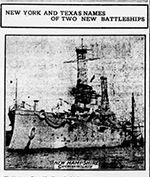
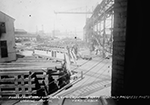
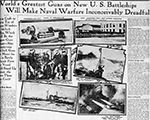
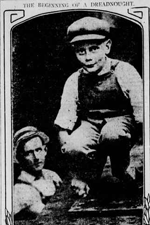
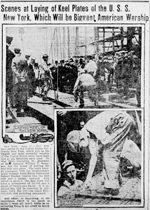
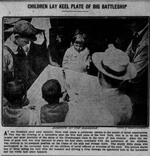
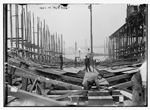
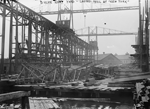
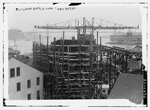
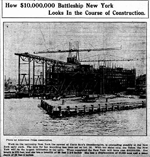
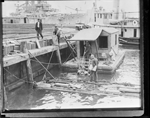
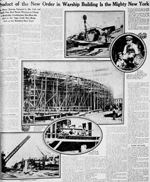
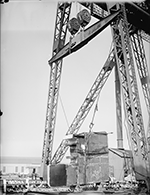
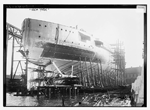
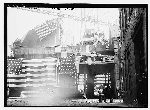


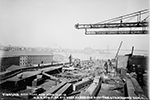
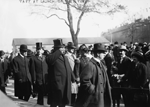 013434o
013434o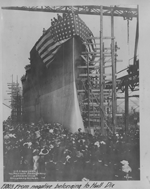
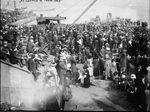 013412e
013412e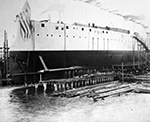 013011m
013011m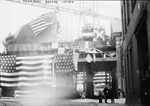 013412p
013412p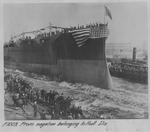
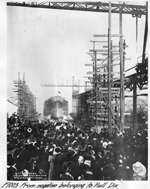
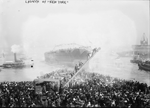 013468h
013468h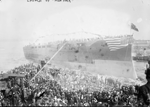 013404b
013404b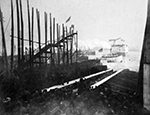
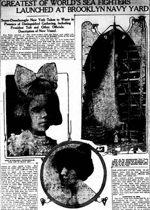
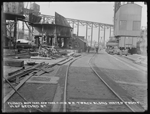 013465f
013465f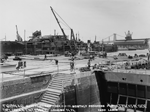 013448
013448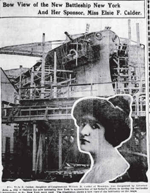
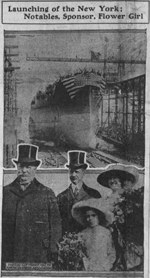 013403i
013403i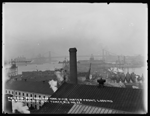 013483
013483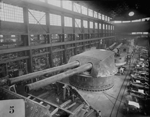
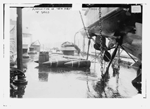
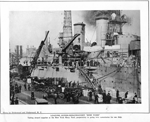
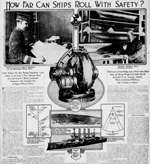
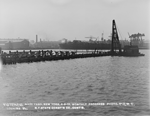 013450
013450 013413p
013413p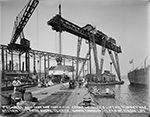
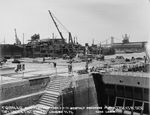 013441
013441
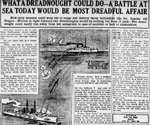
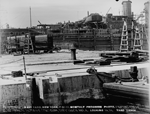 013401
013401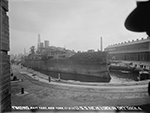
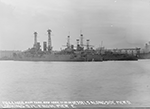

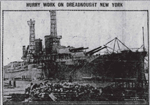
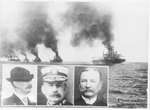
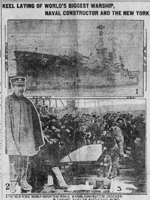
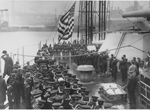 013431
013431

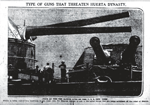
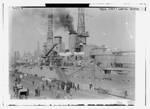
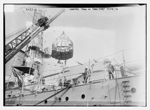
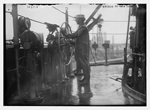
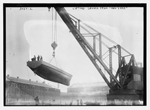
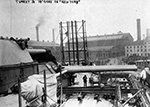
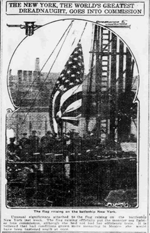 013401t
013401t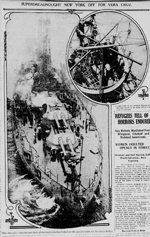
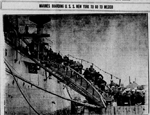

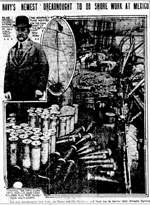
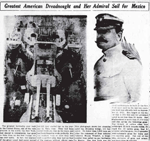
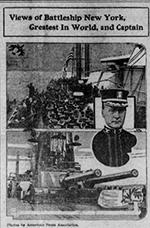
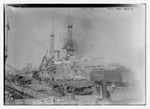
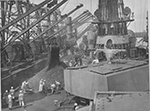
 013417
013417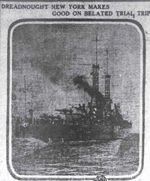
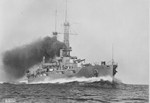 013404
013404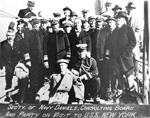

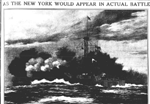
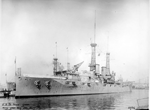
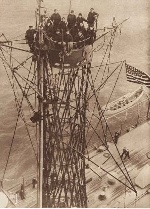
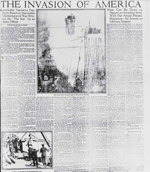
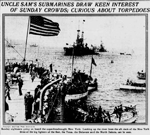
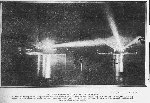
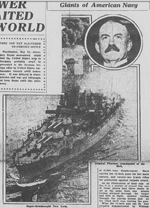

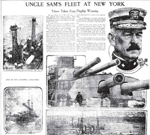
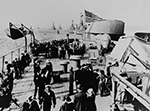

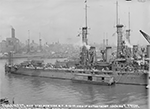
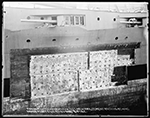
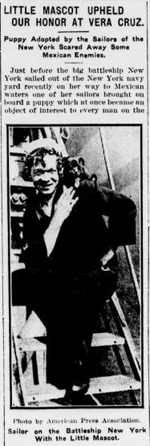

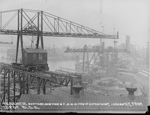 013915h
013915h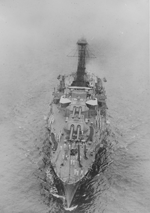 013466
013466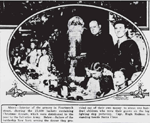
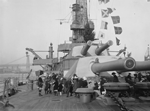

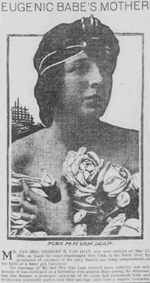

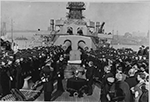

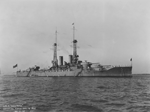 013402x
013402x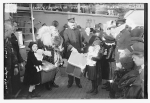
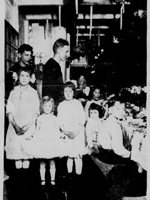
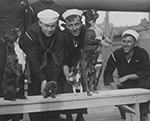
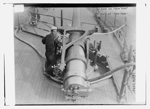
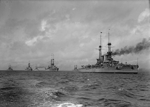
 013487
013487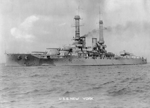 013418h
013418h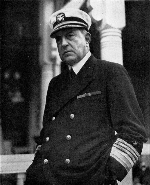

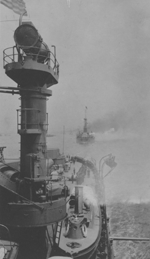 013419c
013419c
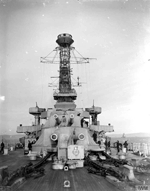
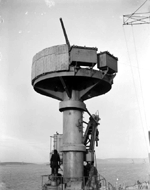
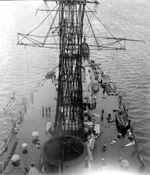

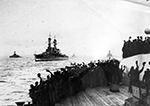
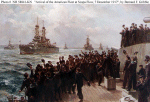
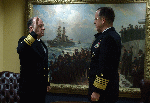

 013224p
013224p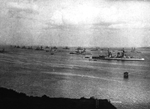
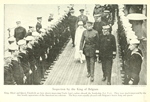
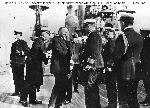

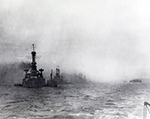

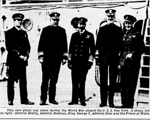 013410
013410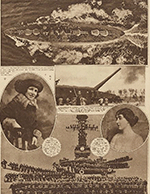



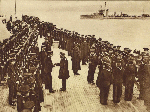
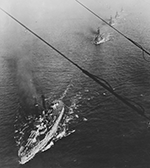
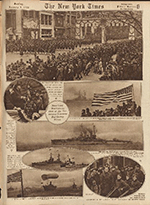
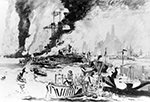
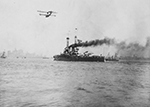
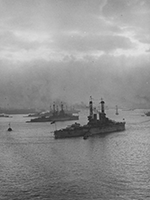
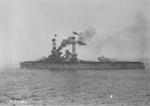 013118u
013118u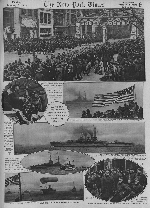


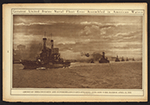
 013580a
013580a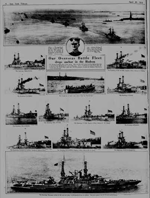
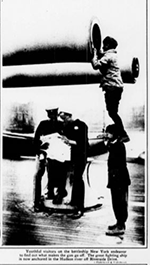
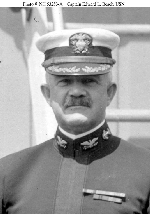
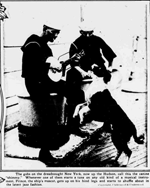 013401n
013401n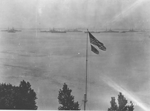 013834n
013834n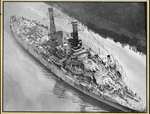
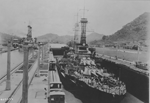 013513u
013513u
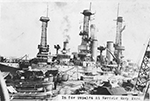
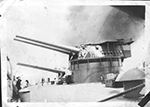

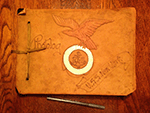

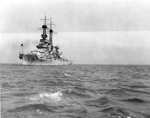
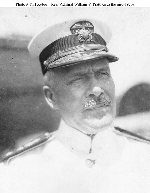

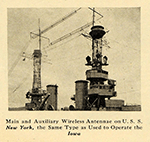
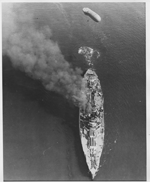

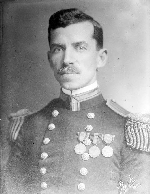
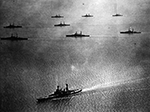

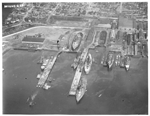 013416
013416
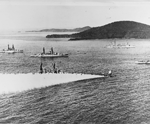 014508
014508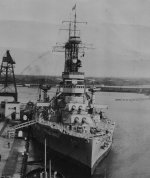
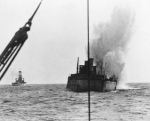


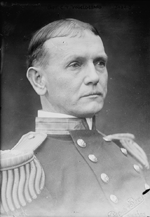
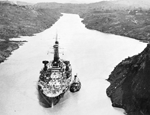



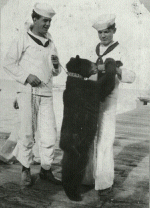

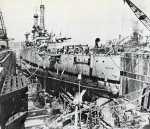
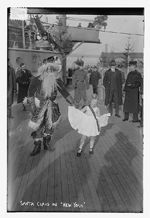
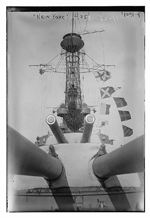
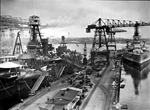 013513q
013513q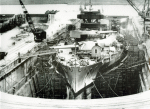
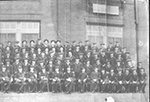
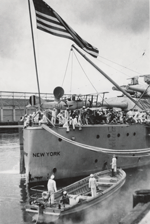 013481
013481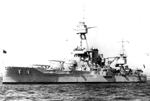
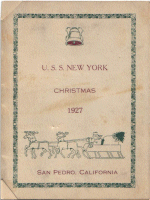
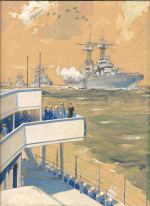
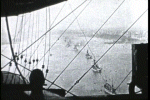
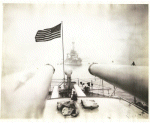
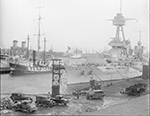
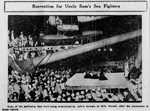 013429
013429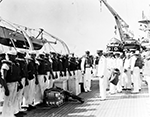
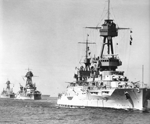
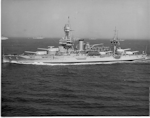
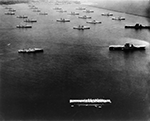


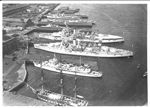
 013315
013315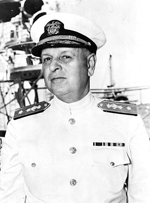
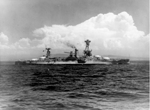
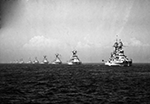
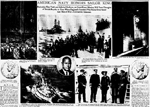
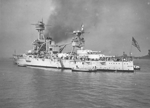

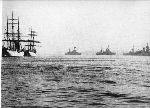
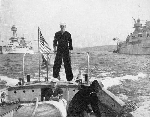
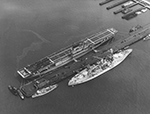
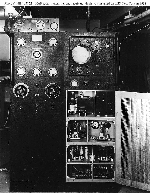
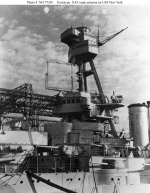

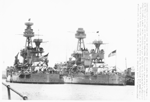
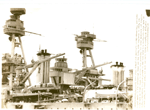
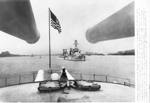
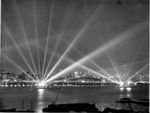
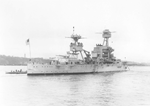
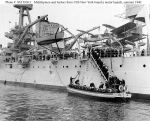
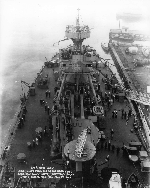
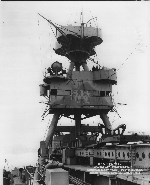
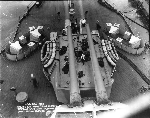
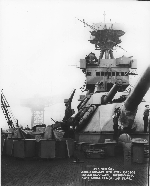
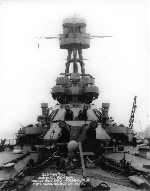
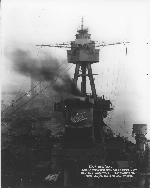
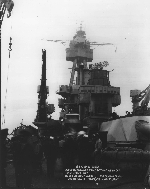
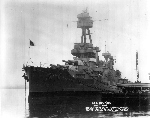
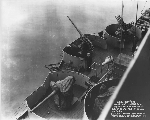

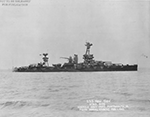
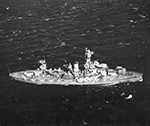



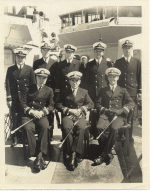
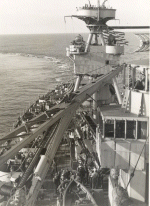
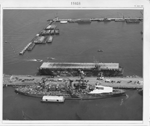
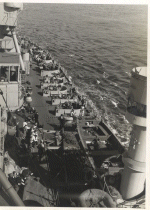
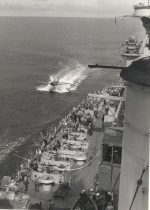
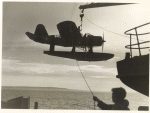
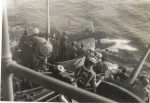
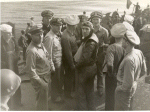
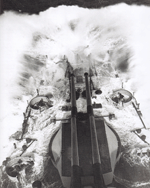
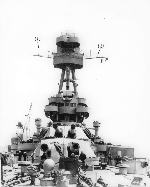
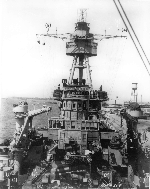
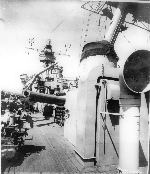
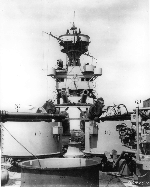
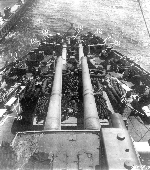
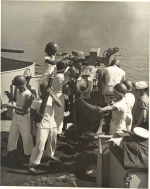
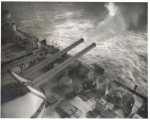
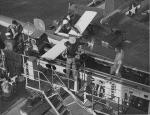
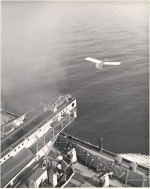
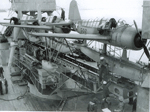
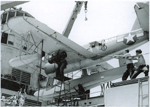
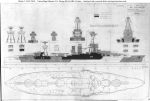
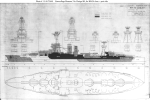
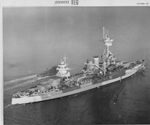
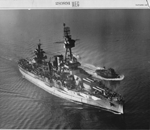
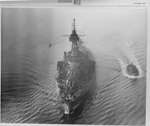
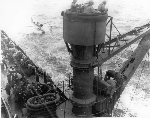
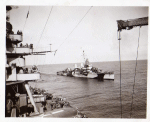
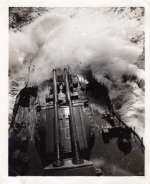
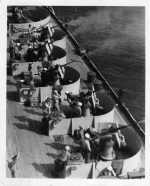
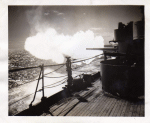
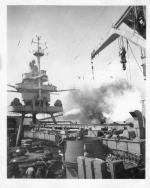
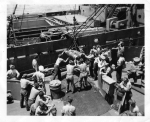
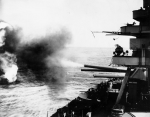

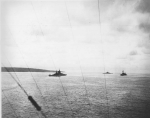
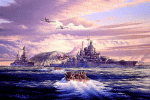
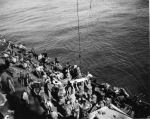
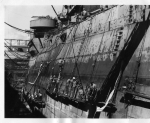
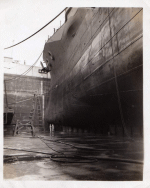
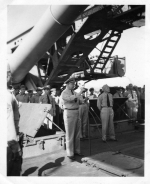
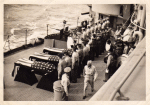
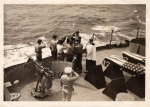
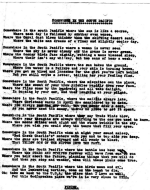
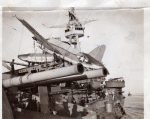

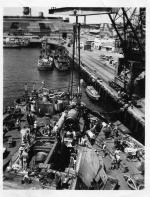
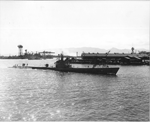

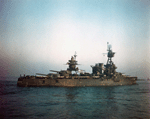
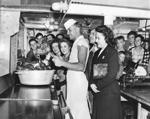
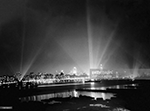
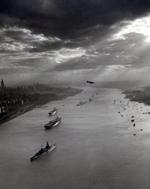
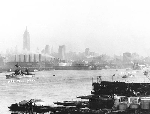
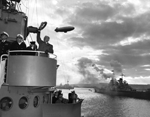
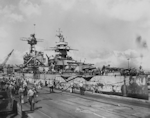
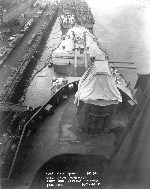
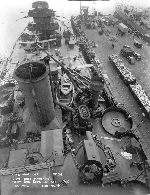
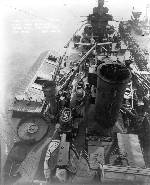
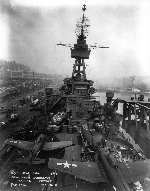
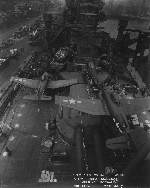
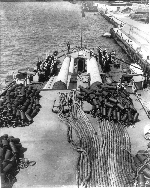
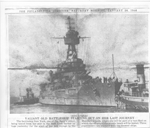
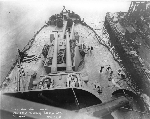
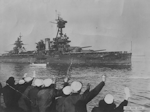
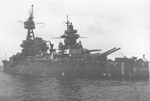
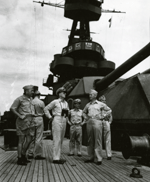 013446w
013446w 013436c
013436c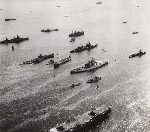
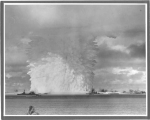

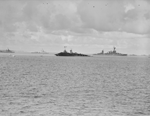 013446s
013446s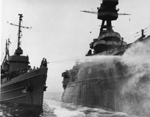 013401y
013401y
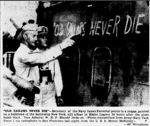 013440
013440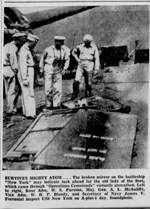 013459
013459